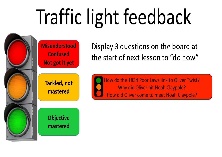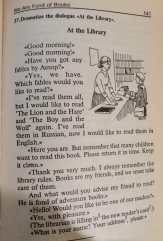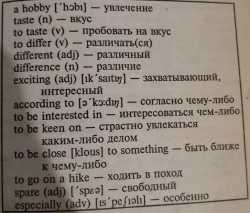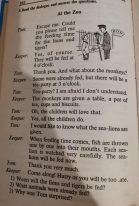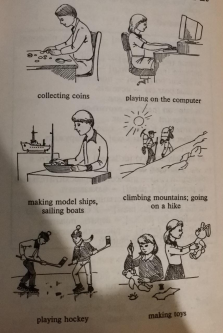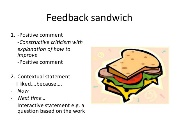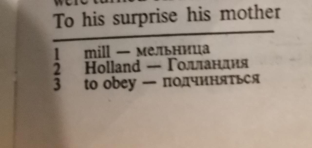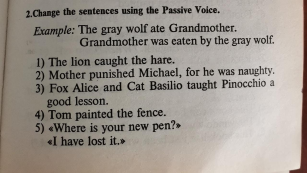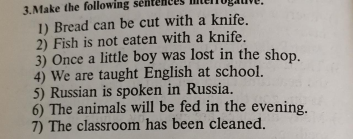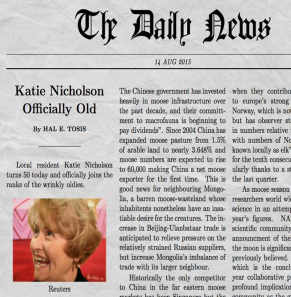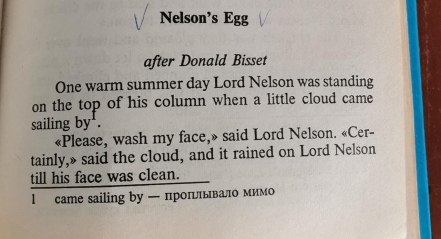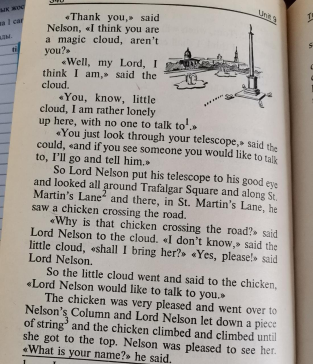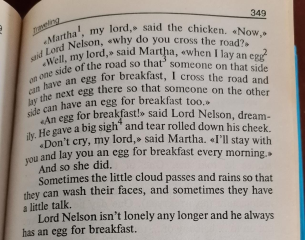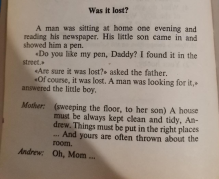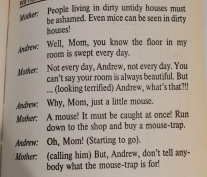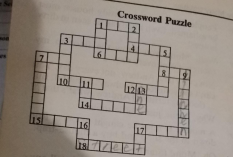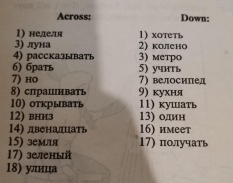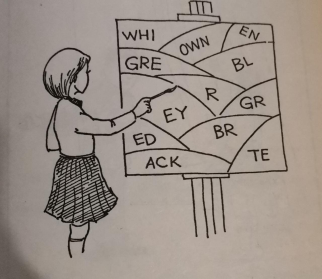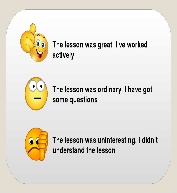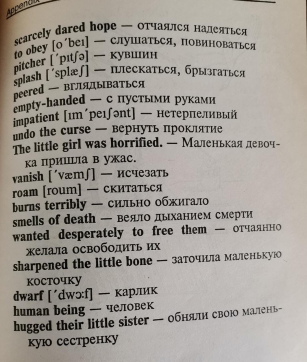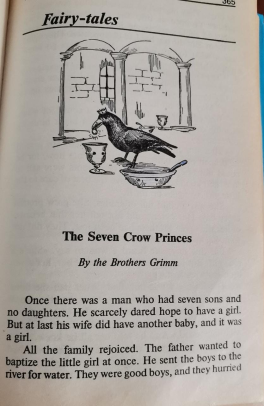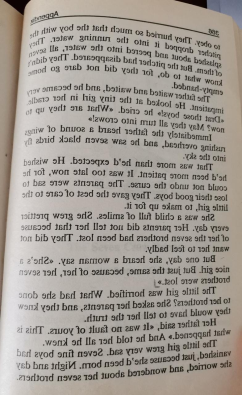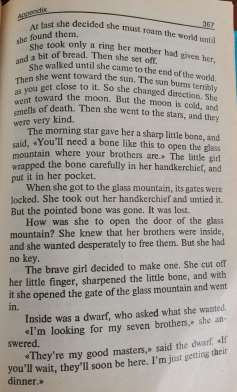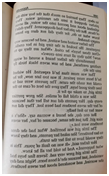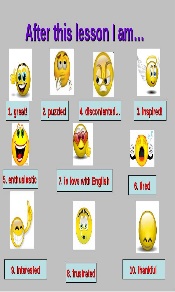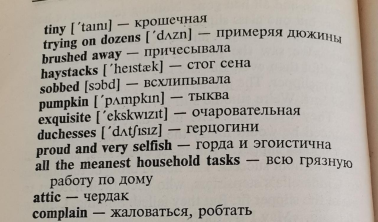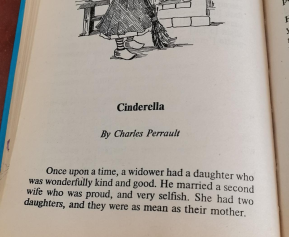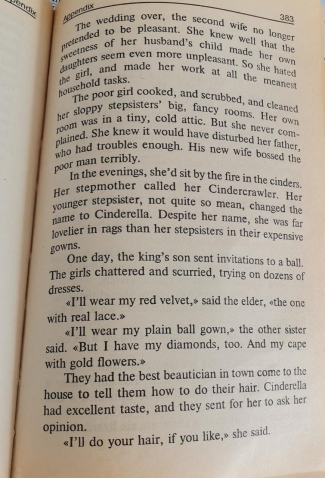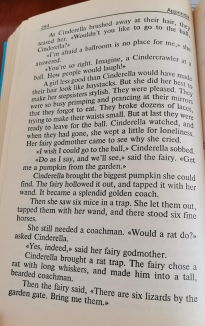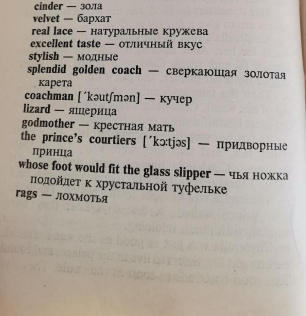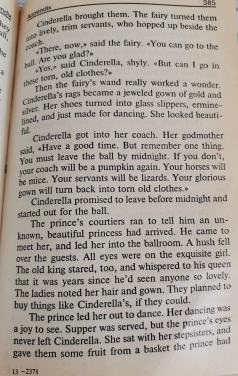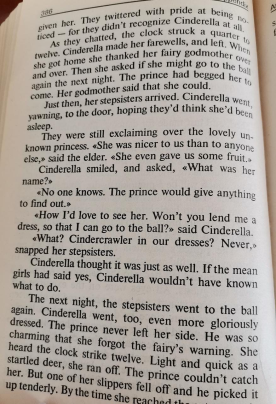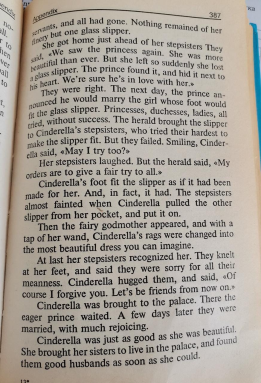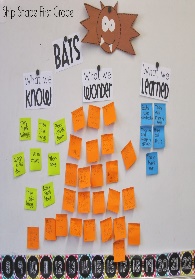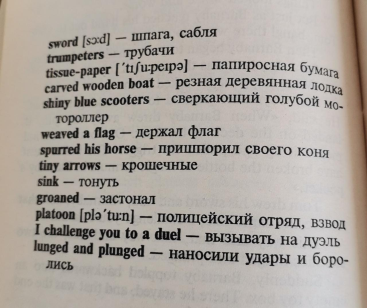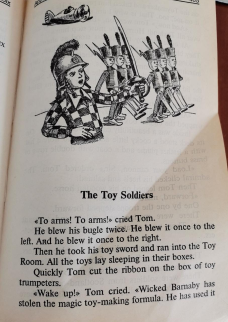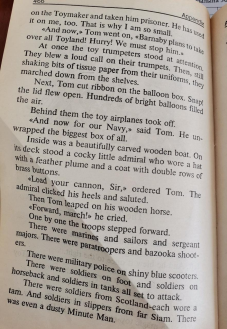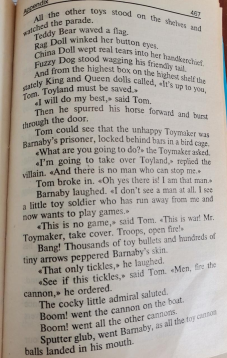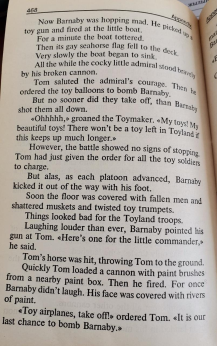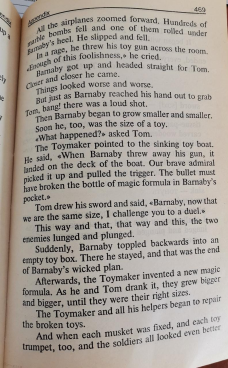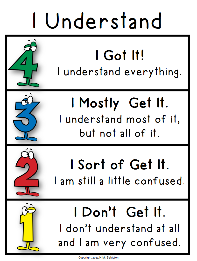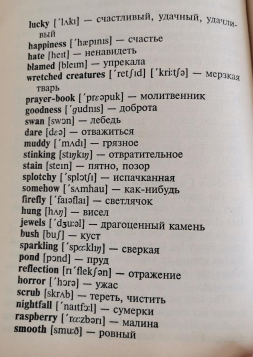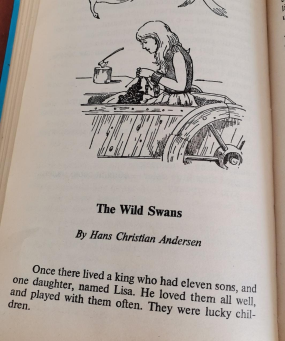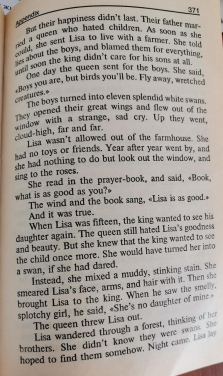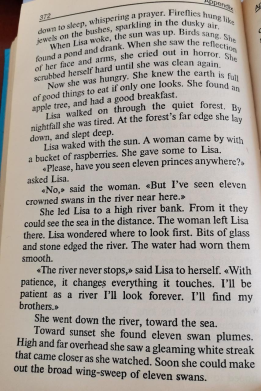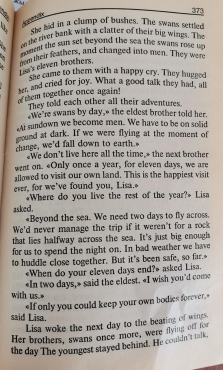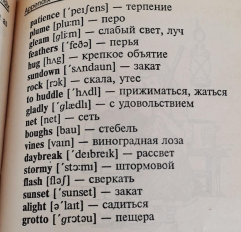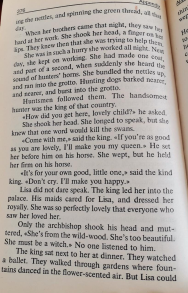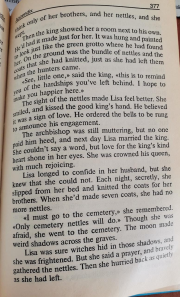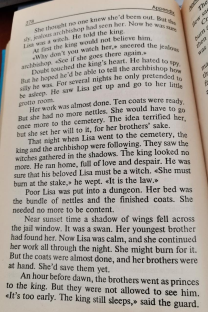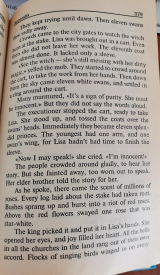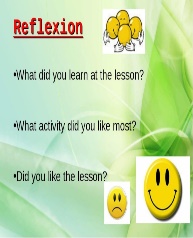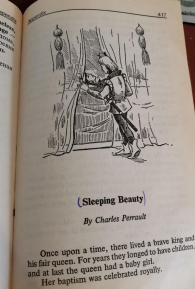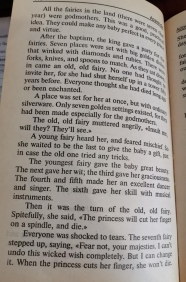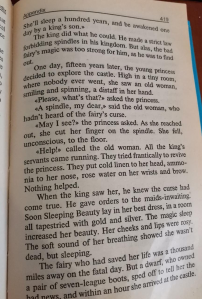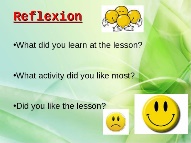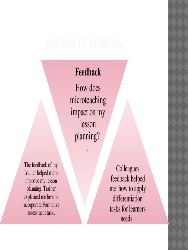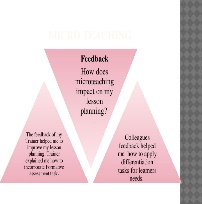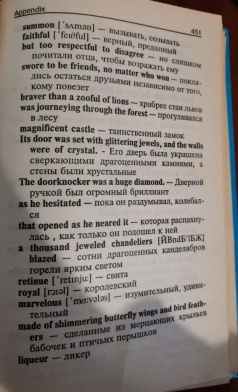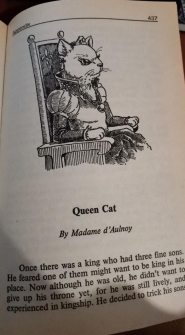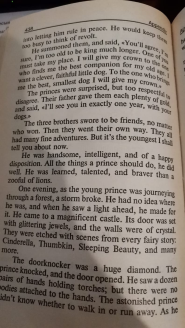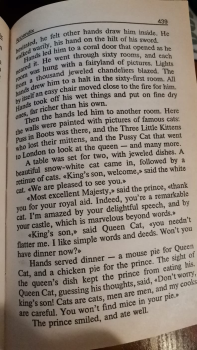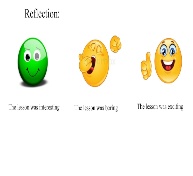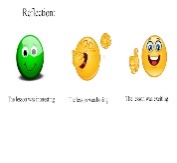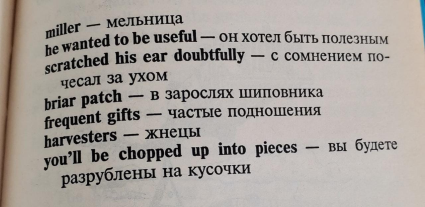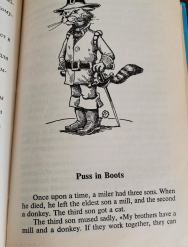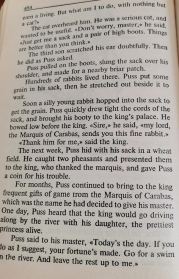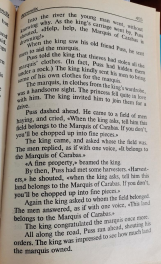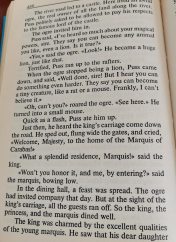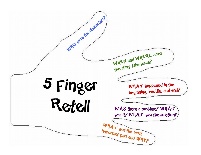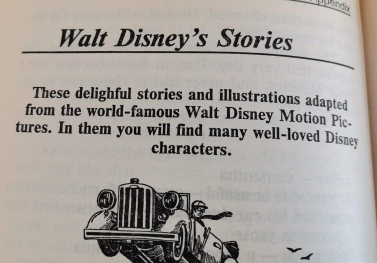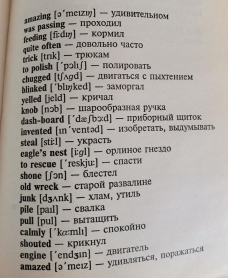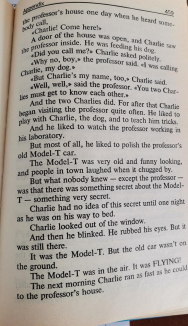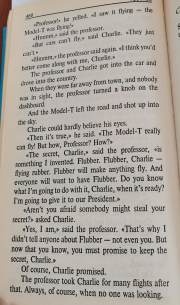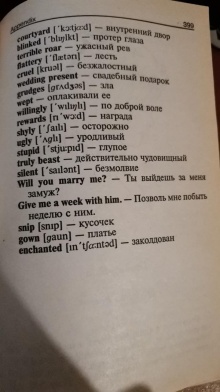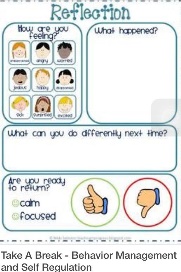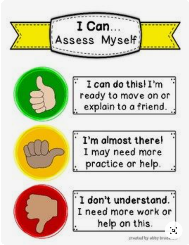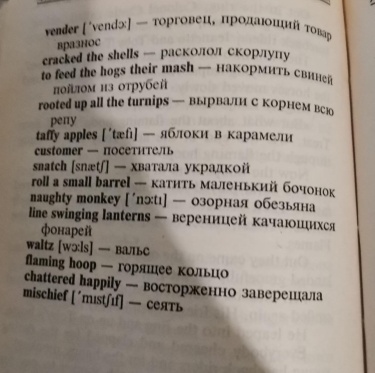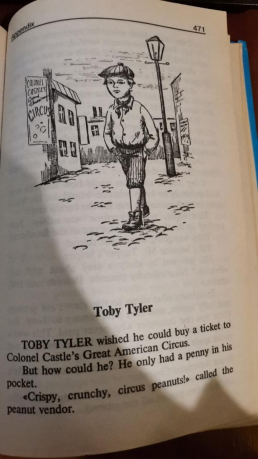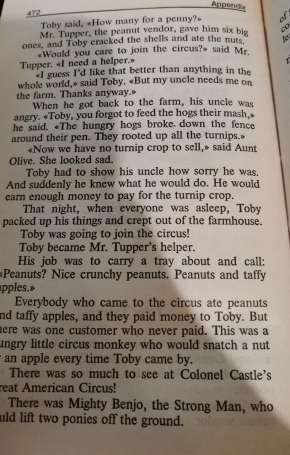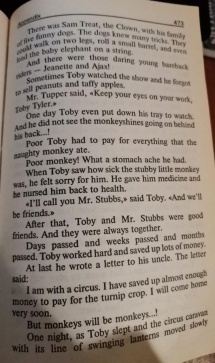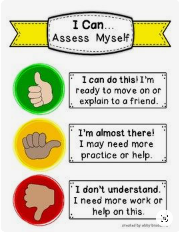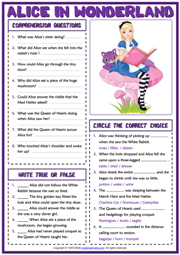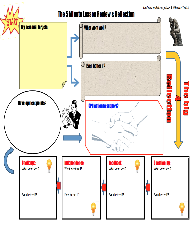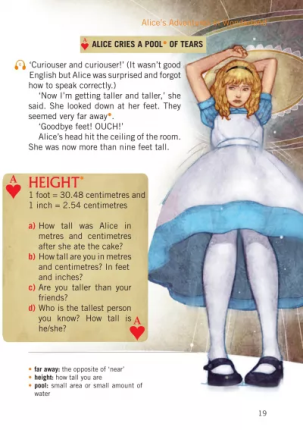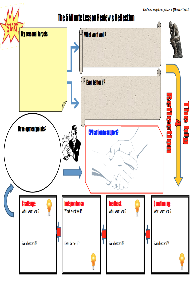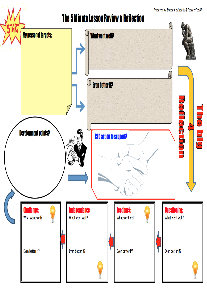
ЫНТАМЕН ОҚУ
Сейсембаева Сезім Жайлаубекқызы -
Жетісу облысы Талдықорған қаласы
Мағжан Жұмабаев атындағы № 19 орта мектеп гимназиясы" КММ-нің ағылшын тілі пәнінің мұғалімі
ТҮСІНІК ХАТ
Бағдарлама ҚР Білім және ғылым министрінің 2013 жылғы 3 сәуірдегі №115 бұйрығымен бекітілген жалпы білім беретін пәндердің ,таңдау курстарының және факультативтердің үлгілік оқу бағдарламалары, «Қазақстан Республикасының орта білім беру ұйымдарында оқу-тәрбие процесін ұйымдастырудың 2022-2023 оқу жылындағы ерекшеліктері туралы» әдістемелік нұсқау хатты басшылыққа ала отырып құрастырылды.
Жаһандану жағдайында ұлттық білім беру парадигмасы, оның басты ұстанымдары бәсекеге қабілетті ұрпақты тәрбиелеу.Гуманитарлық салада білім мазмұнын тереңдету бүгінгі білім берудегі білім сапасының бәсекелестігін арттырудың бір саласы ретінде қарастырылады.Ол жалпы орта білім беру талабына сай оқушының тілдік-теориялық білімін жетілдіру, сөйлеу дағдысын қалыптастыру барысында жүзеге асады. Ағылшын тілі сондай-ақ әр халықтың бүгінгі дүниедегі өзінің жағдайын айқын сезінуге және болып жатқан оқиғалар мен құбылыстарға қатынасын нақты анықтауға, олардың мәні мен бағытын жете түсінуге мүмкіндік беретін ғылым саласы.
Ағылшын тілінің күрделі белестері өткен заман оқиғаларын жаңғырта түседі және оны біз бүгінгі күннің ауқымды мәселелерін шешудегі қоғамның кілті ретінде қабылдаймыз.
Кез келген қоғамның басты ұстанымы адамзат факторы. Халықтардың этникалық құрылымындағы ерекшеліктеріне қарамастан, әрбір халық қоғамның бір жүйесі, бөлшегі болып табылады. Осы салада ағылшын тілі де ол жалпы адамзаттық қатынастар ауқымына және дүниежүзілік қауымдастыққа енеді. Дербес ұлттық тілдік құрылымы жоқ халық дүниежүзілік тарихи үрдісте өзіндік рөл атқара алмайды.
Мақсаты: Ағылшын тілі пәнінің қоғам өміріндегі маңыздылығы туралы білім беру, ағылшын тілі пәнін тереңдетіп оқытуда оқушылардың білімін жетілдіру.
Міндеттері:
-Ағылшын тілін оқыта отырып оның қоғам өміріндегі маңыздылығы туралы білім беру.
-Ағылшын тілі пәнін тереңдетіп оқытуда оқушылардың білімін жетілдіру.
- Ғылымның даму салалары бойынша түсінік беру.
- Ағылшын тілі туралы оқушыларды білімге дағдыландыру.
-Қоғам өміріндегі ағылшын тілі ғылымының жетістіктеріне түсініктеме беру.
-Оқушыларды кітап оқуға дағдыландыру.
Күтілетін нәтижелер:
- Ағылшын тілінің қоғам өміріндегі маңыздылығы туралы білім алады.
-Ағылшын тілі пәнін тереңдетіп оқытуда оқушылардың білімін жетілдіреді.
- Ғылымның даму салалары бойынша түсінік беріледі.
- Ағылшын тілі ғылымы туралы оқушылар білімге дағдыланады.
-Қоғам өміріндегі ағылшын тілі ғылымының жетістіктеріне түсінік беріледі.
-Оқушылар құжаттармен жұмыс жасауға дағдыланады.
Өзектілігі:
Ағылшын тілі пәнінің қоғам өміріндегі маңыздылығы туралы түсінік беру, ағылшын тілі ғылымының зерттелу деңгейін оқыту арқылы жасөспірімдердің санасына сіңіру. Оқылым дағдысын дамыта отырып, мәтінмен жұмыс жасау арқылы функционалдық сауаттылыққа арттыру. Қазіргі замандағы дамыған ғасырда ағылшын тілі ғылымының зерттелуі туралы білдіру .
Қолданылатын технологиялары: сыни тұрғыдан ойлау ( СТО), ақпараттық технлолгиясы (АКТ), кейс- стади технологиясы (case -Study) дамыта оқу.
Қолданылатын әдіс-тәсілдер: түсіндіру, мәнерлеп оқу, әңгімелеу, аударма жұмысы, жұптық жұмыс, ыстық орындық.
Пәнаралық байланыс: әдебиет, география, орыс тілі, қазақ тілі, дүниежүзі тарихы.
Оқу пәнінің бағдарламалық мазмұны
Барлығы 36 сағат, аптасына 1 сағат қамтылған. Бағдарлама жалпы Сөйлесімдік бөлім, тыңдалым және оқылым бөлімдерінен құрылған.
-
Сөйлесімдік бөлім
Сөйлесім. Диалогтік сөйлесім.
Берілген тақырыптар бойынша диалогтік сөйлесімді меңгеру кезінде оқушылар мәлімет алмаса отырып, диалог-сұрақ, диалог ой алмасу түрлерін меңгереді.
Монологтік сөйлесім.
Тақырыпты оқып, оқиғаны көпшілік алдында айта білуге, талқылай білуге, ойын жүйелеуге дағдыланады.
-
Тыңдалым
Сөйлеушінің сөйлеу тілін түсіну және оны қабылдау, тыңдаған аудио- видео материалдардың негізгі идеясын түсіну, қорытынды шығаруға машықтандыру.
-
Оқылым
Оқылымды меңгерту барысында оқушыларға жалпы оқу, мазмұнын түсіне оқу, белгілі бір ақпаратқа оқу түрлерімен жұмыс жасату.
Бағдарламаның мазмұны келесі тақырыптардан тұрады
Кіріспе. 1 сағат. Курстың мақсат, міндеттері туралы.
The Wonderful world of books – Кітаптар әлемінде 1 сағат. Кітаптар әлемімен танысу, ақпаратпен бөлісу.
At the Library – Кітапханада 1 сағат. Кітаптар әлемімен танысу, сұхбат алу.
We read and talk. So many people, so many hobbies – Оқып үйренеміз 1 сағат. Кітаптар түрлерін талдау, ажырату, бөлу.
A Midsummer Night’s Dream- Жазғы түндегі түс 2 сағат. Оқып отыра түсіну, өз ойымен бөлісу.
The Mill- boy and the Painted shoes- Диқаншы және өрнектелген аяқ киім 1 сағат. Оқып, түсіну, идеямен бөлісу.
A letter from America- Хат жазу 1 сағат. Хат жазу үлгісімен танысу.
Nelson’s Egg – 1 сағат. Оқып, мазмұндама жасай білу.
A newspaper joke- Газет- журналдағы мақалалар 2 сағат. Мақала жазу ерекшеліктерімен танысу. Функционалдық сауаттылықтарын арттыру.
The seven Crow Princes- Ақ қыз 2 сағат. Әңгімені ынтамен оқу, өз ойын қосып аяқтау, жаңа идеялар қосу.
Comedy of Errors- Комедияның қателері 2 сағат. Comedy of Errors
Cinderella- Күлбикеш 2 сағат. Қиял –ғажайып бағытында әңгімені анықтау, оқып зерттеу. Функционалдық сауаттылықтарын арттыру.
The toy soldiers- Ойыншық солдаттар 1 сағат. Шағын әңгімені оқып, идеясын ашу.
The wild Swans- Жабайы аққулар 2 сағат. Әңгімені оқып, көмексіз түсіну, негізгі идеясымен жұмыс жасауға үйрету.
Sleeping Beauty- Ұйқыдағы ару 3 сағат. Әңгімені оқып, аудармасыз түсіну, негізгі идеясымен жұмыс жасауға үйрету.
Madam Cat- Мысық бикеш 2 сағат. Әңгімені оқып, идеясын ашу. Жеке жұмыс жасауға баулу.
Puss in boots- Бәтеңке киген мысық 1 сағат. Әңгімені оқып, көмексіз түсіну, негізгі идеясымен жұмыс жасауға үйрету. Әңгіме арқылы проблеманы шешу жолдарымен танысу, байланыстыруға үйрету.
The flying car – Ұшатын көлік 1 сағат. Әңгімені оқып өмірмен байланыстыру,функционалдық сауаттылықтарын арттыру.
Donkey skin- Бетперде 1 сағат. Әңгіме желісі бойынша қорытынды жасай алу.
Beauty and the Beast- Хас сұлу мен құбыжық 2 сағат. Әңгімені түсініп оқу, оқуға құштарлықты рттыру ,жаттығу жұмыстары арқылы алған білімді бекіту.
Toby Tyler- Тобу Тайлер 1 сағат. Оқып, түсіну жанр бойынша ерекшеліктермен танысу.
Alice in Wonderland- Алиса ғажайыптар елінде 4 сағат. Әңгімені түсініп оқу, оқуға құштарлықты рттыру ,жаттығу жұмыстары арқылы алған білімді бекіту. Әңгімені оқып, көмексіз түсіну, негізгі идеясымен жұмыс жасауға үйрету.
Revision. Test- Тест. Қайталау 1 сағат. Өткенді бекіту, қорытындылау.
«Reading for Pleasure» факультативінің күнтізбелік -тақырыптық жоспары
Ұсынылып отырған факультатив бағдарламасы 1 оқу жылына, аптасына 1 сағатқа негізделіп құрылған. 36 аптаға жылына 36 сағаттан тұрады.
|
№ |
Theme |
Hours |
time |
|
1 |
Introduction. We read and learn |
1 |
|
|
2 |
The Wonderful world of books |
1 |
|
|
3 |
At the Library |
1 |
|
|
4 |
We read and talk So many people, so many hobbies |
1 |
|
|
5 |
A Midsummer Night’s Dream |
1 |
|
|
6 |
A Midsummer Night’s Dream |
1 |
|
|
7 |
The Mill- boy and the Painted shoes |
1 |
|
|
8 |
A letter from America |
1 |
|
|
9 |
Nelson’s Egg |
1 |
|
|
10 |
A newspaper joke |
1 |
|
|
11 |
Time for fun. A newspaper joke |
1 |
|
|
12 |
The seven Crow Princes |
1 |
|
|
13 |
The seven Crow Princes |
1 |
|
|
14 |
Comedy of Errors |
1 |
|
|
15 |
Comedy of Errors |
1 |
|
|
16 |
Cinderella |
1 |
|
|
17 |
Cinderella |
1 |
|
|
18 |
The toy soldiers |
1 |
|
|
19 |
The wild Swans |
1 |
|
|
20 |
The wild Swans |
1 |
|
|
21 |
Sleeping Beauty |
1 |
|
|
22 |
Sleeping Beauty |
1 |
|
|
23 |
Sleeping Beauty |
1 |
|
|
24 |
Madam Cat |
1 |
|
|
25 |
Madam Cat |
1 |
|
|
26 |
Puss in boots |
1 |
|
|
27 |
The flying car |
1 |
|
|
28 |
Donkey- skin |
1 |
|
|
29 |
Beauty and the Beast |
1 |
|
|
30 |
Beauty and the Beast |
1 |
|
|
31 |
Toby Tyler |
1 |
|
|
32 |
Alice in Wonderland |
1 |
|
|
33 |
Alice in Wonderland |
1 |
|
|
34 |
Alice in Wonderland |
1 |
|
|
35 |
Alice in Wonderland |
1 |
|
|
36 |
Revision. Test |
1 |
|
|
LESSON 1 |
|
||||||
|
Teacher name: Seisembaeva S |
School: №19 |
||||||
|
Date: |
|
||||||
|
Grade: 6 |
Number present: |
Number absent: |
|||||
|
Theme of the lesson: |
Introduction. We read and learn |
||||||
|
Lesson objectives |
respect different points of view; understand supported narratives of curricular topic; give an opinion on some extended stories of curricular topic; |
||||||
|
Plan |
|||||||
|
Planned timings |
Planned activities |
Learners’ activities |
Evaluation |
Resources |
|||
|
Beginning 5 min |
Organizational moment Teacher greets students. Teacher discusses learning objectives with the students. Warm –up. Teacher shows the quotation and asks learners to think what it means, give some examples. Read the quotation. What does it mean? Do you agree and disagree? Why? Discuss. “The more that you read, the more things you will know. The more that you learn, the more places you’ll go.” Dr. Qeuss |
Learners discuss the quotation |
|
Handout 1 |
|||
|
Middle 35 min |
5 Useful tips for reading: 1. Reread Students must often revisit text to clarify understanding. When a student neglects to reread, comprehension can suffer. 2. Use Context Clues Context clues help the reader to differentiate between similar words in a passage. Using the words around the unknown word, your students are able to determine what makes sense 3. Infer Meaning Making an inference requires higher order thinking skills. Inferencing is a necessary part of reading throughout school and is also an important skill in life in general. 4.Think Aloud The think aloud strategy is usually modeled by the teacher, so that students can see the meta-cognitive process. 5.Summarize the Story The point of reading is, after all, comprehension, so it’s so important for your lucky little learners to be able to effectively retell what he or she has read.
Task 1 Read these Tongue Twisters quickly. - "A big black bug bit a big black dog on his big black nose." - "I can think of six thin things, but I can think of six thick things too." - "If two witches were watching two watches, which witch would watch which watch?" - “The big bug bit the little beetle, but the little beetle bit the big bug back." -“A tricky frisky snake with sixty super scaly stripes.” Task 2 Read and find the right answer - What do the letter T and an island have in common? Answer: An island - I’m the rare case when today comes before yesterday. What am I? Answer: A question of time - What two words, added together, contain the most letters? Answer: Word play
|
Students should read and translate it Students should read it quickly Students should find correct answers |
Verbal evaluation “The prise” method Good job! Individual evaluation |
https://luckylittlelearners.com/13-powerful-reading-strategies-for-young-readers/ |
|||
|
End 5 min |
REFLECTION At the end of the lesson, learners reflect on their learning: What was difficult on this lesson? What was easy on this lesson? Home task: learn by heart new Tongue Twisters Saying goodbye |
|
Feedback
|
|
|||
|
LESSON 2 |
|
||||||
|
Teacher name: Seisembaeva S |
School: 19 |
||||||
|
Date: |
|
||||||
|
Grade: 6 |
Number present: |
Number absent: |
|||||
|
Theme of the lesson: |
The wonderful world of books |
||||||
|
Lesson objectives |
Identify all specific information from the text and use a wide range of target vocabulary to describe the books |
||||||
|
Plan |
|||||||
|
Planned timings |
Planned activities |
Learners’ activities |
Evaluation |
Resources |
|||
|
Beginning 5 min |
Organizational moment Teacher greets students. Teacher sets positive atmosphere by asking such ice breaking questions as How was your weekend? What date is it today? What is the weather like today? Teacher discusses learning objectives with the students. Warm –up. 1. Are you fond of reaiding? 2. Do you like to read? 3 Is reading books a hobby? |
Learners should answer to these questions |
Individual evaluation |
Handout 1 |
|||
|
Middle 35 min |
Focus on reading Pre- reading task
While-reading task
Post –reading task
Is Mark Twain an American or an English writer? |
Students should learn new words and recognize them when reading Students should complete the sentences Students should answer the questions on the text |
“The prise” method Good job!
Verbal evaluation Individual evaluation |
p 125 p 115 |
|||
|
End 5 min |
REFLECTION At the end of the lesson, learners reflect on their learning: I would like to tell you about … I would like to explain why … The best part of today’s lesson was … One important thing to remember is.. Today I have learnt … Home task: Ex3 retelling the text , p 115 Saying goodbye |
Learners use the sentences show their knowledge according to the lesson |
Formative assessment |
|
|||
|
LESSON 3 |
|
||||||
|
Teacher name: Seisembaeva S |
School: 19 |
||||||
|
Date: |
|
||||||
|
Grade: 6 |
Number present: |
Number absent: |
|||||
|
Theme of the lesson: |
At the Library |
||||||
|
Lesson objectives |
Identify specific information in the text read and reorder parts of a story without support |
||||||
|
Plan |
|||||||
|
Planned timings |
Planned activities |
Learners’ activities |
Evaluation |
Resources |
|||
|
Beginning 5 min |
Organizational moment Greetings Teacher sets the lesson objectives, letting students know what to anticipate from the lesson. Teacher sets positive atmosphere by asking such ice breaking questions as How was your weekend? What date is it today? What is the weather like today? Teacher discusses learning objectives with the students. Warm –up. Students watch the video |
Learners should repeat after the video |
Verbal evaluation |
Visual aid |
|||
|
Middle 35 min |
Focus on reading Pre- reading task 1. What is the world of books full of? 2. What kind of books do you like to read? 3. What kind of books can you get from the library? 4. Is your school library rich in books? 5. Do you often go there Read and translate it
Post-reading task
Task 2.Role play -imagine you are invited to your friend's birthday party. You think that a book as present is better than a toy. prove it. - imagine that you have read a very interesting book. You would like your friend to read it. what book is this? What would you say about the book to make your friend read it? -imagine your friend has read the book you advised him to read. You are discussing the book. Make up a dialogue. -imagine that a famous children's writer has come to your school. What questions would you ask him? |
Learners should demonstrate their own ideas Learners should read then translate Learners should read and answer Learners should choose one topic and create a role play in pairs |
“The prise” method Good job!
Verbal evaluation Individual evaluation
Verbal evaluation |
Handout 1 P 141 P 141 Handout 2 |
|||
|
End 5 min |
REFLECTION Traffic lights The yellow says “wait”, the red says “stop”, the green says “go”, Home task: Ex1 retelling the text, p141 Saying goodbye |
Students should give feedback on the traffic light method |
Feedback |
|
|||
|
LESSON 4 |
|
||||||
|
Teacher name: Seisembaeva S |
School: 19 |
||||||
|
Date: |
|
||||||
|
Grade: 6 |
Number present: |
Number absent: |
|||||
|
Theme of the lesson: |
We read and talk. So many people, so many hobbies |
||||||
|
Lesson objectives |
Understand the reading text Enrich vocabulary with new words related to the topic |
||||||
|
Plan |
|||||||
|
Planned timings |
Planned activities |
Learners’ activities |
Evaluation |
Resources |
|||
|
Beginning 5 min |
Organizational moment Teacher presents the lesson objectives, explains students what they would be able to do by the end of this lesson. Warming –up Before learners start reading and performing tasks teacher asks some questions: -What is a hobby? -Do you have many different hobbies? - What do you usually do in your free time? |
Learners should answer to these questions |
Individual evaluation |
PPT Handout 1 |
|||
|
Middle 35 min |
Focus on vocabulary
Task 1 Create 5 sentences according to the new words Task 2 Work in pairs
Ex 17. Look at these pictures and say what these children are interested in
|
Students should learn new words and recognize Students should use these new words Students should read the dialogues Students should create a story according to the picture |
Evaluation by signals Verbal evaluation Self assesment Individual evaluation |
P 165 P 162 P 169 |
|||
|
End 5 min |
REFLECTION At the end of the lesson, learners are given stickers to give reflection on it finishing lines below: -Describe the lesson with one word Home task: write an essay about your hobby. Saying goodbye |
Learners choose one and put on the board their stickers. |
Self assessment |
|
|||
|
LESSON 5 |
|
||||||
|
Teacher name: Seisembaeva S |
School: 19 |
||||||
|
Date: |
|
||||||
|
Grade: 6 |
Number present: |
Number absent: |
|||||
|
Theme of the lesson: |
A Midsummer Night’s Dream |
||||||
|
Lesson objectives |
Understand the reading text Enrich vocabulary with new words related to the topic |
||||||
|
Plan |
|||||||
|
Planned timings |
Planned activities |
Learners’ activities |
Evaluation |
Resources |
|||
|
Beginning 5 min |
Organizational moment Teacher greets students. Teacher discusses learning objectives with the students. Warm –up. -Who is William Shakespeare? -Do you know about his works? -Have you ever read his books? |
Learners should answer to these questions |
Individual evaluation |
PPT Handout 1 |
|||
|
Middle 35 min |
Focus on reading Short History of this story. A Midsummer Night's Dream is a play that was written by William Shakespeare in 1595 or 1596. This Shakespeare's play is one of his most well-known and it is quite popularly played and narrated worldwide. The play is set in Athens and contains many subplots centered on the marriage of Theseus and Hippolyta. A fight between four Athenian lovers is one of the subplots. Another film follows a group of six amateur actors as they rehearse the play that will be performed before the wedding. Task 1 Pre- reading task: New words Aristocrat- аристократ Occasion-жағдай Smitten-жеңілген the force of the law-заң күші Post reading task: What are the 3 main themes of a midsummer night dream? Answer: The main themes in A Midsummer Night's Dream are love, imagination, and patriarchy. Love: Shakespeare portrays romantic love as a blind, irrational, often beautiful force that can be both cruel and forgiving. Ultimately, love drives the play's entire plot.
Task 2 Create sentences with new words |
Learners should read these sentences Learners should learn new words and recognize them when reading Learners should answer to these questions Learners should create sentences |
“The prise” method Good job!
Verbal evaluation Individual evaluation
“The prise” method Good job! |
https://www.vedantu.com/stories/midsummer-night-s-dream-story Handout 2 Handout 3 Handout 4 |
|||
|
End 5 min |
REFLECTION At the end of the lesson, learners reflect on their learning: I would like to tell you about … I would like to explain why … The best part of today’s lesson was … One important thing to remember is.. Today I have learnt … Home task: Ex1 retelling the story Saying goodbye |
Learners use the sentences show their knowledge according to the lesson |
Feedback
|
|
|||
|
LESSON 6 |
|
||||||
|
Teacher name: Seisembaeva S |
School: 19 |
||||||
|
Date: |
|
||||||
|
Grade: 6 |
Number present: |
Number absent: |
|||||
|
Theme of the lesson: |
A Midsummer Night’s Dream |
||||||
|
Lesson objectives |
Identify specific information in the text Apply topic related vocabulary in speech appropriately arranging words and phrases into well-formed sentences. |
||||||
|
Plan |
|||||||
|
Planned timings |
Planned activities |
Learners’ activities |
Evaluation |
Resources |
|||
|
Beginning 5 min |
Organizational moment Teacher greets learners. Teacher sets positive atmosphere by asking some ice breaking questions. Teacher discusses learning objectives with students. Warm –up. Teacher organizes an activity: ‘Brain power’. The idea is the same as in ‘Hot potato’ – all participants one by one throw a ball to a classmate saying one word/phrase they remember from previous lessons (Topic A Midsummer Night’s Dream). This way some vocabulary recap takes place. |
|
|
PPT |
|||
|
Middle 35 min |
Focus on vocabulary Task 1 Quiz Teacher distributes the vocabulary quiz to learners. Learners should do the tasks individually. If learners have problems understanding a task, they should ask the teacher to help them. Teacher’s support should not be thorough – just some hints/clues are given. Task 2 Give a description of the characters of the story “A Midsummer Night’s Dream” Puck- Oberon- Lysander- Demetrius- Hermia- Helena-
Task3 Choose the correct answer 1. Who is chosen to play the lion in the craftsmen’s play? -Peaseblossom -Snug 2. Which of the young Athenians is first affected by the love potion? -Lysander -Helena 3. Which man does Hermia’s father want her to marry? -Demetrius -Lysander |
Learners focus on the tasks and accomplish them independently Learners should describe the main characters Learners should find correct answer |
Individual evaluation
“The prise” method Good job! Individual evaluation |
Mobile apps https://www.sparknotes.com/shakespeare/msnd/characters/ https://www.sparknotes.com/shakespeare/msnd/quiz/ |
|||
|
End 5 min |
REFLECTION At the end of the lesson, learners reflect on their learning: Write down 3 things you have done particularly well this lesson Write 1 thing that you think you could have done better Home task: write an essay about the moral of this story Saying goodbye |
|
|
|
|||
|
LESSON 7 |
|
||||||
|
Teacher name: Seisembaeva S |
School:19 |
||||||
|
Date: |
|
||||||
|
Grade: 6 |
Number present: |
Number absent: |
|||||
|
Theme of the lesson: |
The Mill-Boy and the Painted Shoes |
||||||
|
Lesson objectives |
Identify specific information in the text Demonstrate comprehension by answering most of the questions correctly |
||||||
|
Plan |
|||||||
|
Planned timings |
Planned activities |
Learners’ activities |
Evaluation |
Resources |
|||
|
Beginning 5 min |
Organizational moment Teacher greets students. Teacher sets positive atmosphere by asking such ice breaking questions as How was your weekend? What date is it today? What is the weather like today? Teacher discusses learning objectives with the students. Warm –up. Students watch the video |
Learners should repeat after the video |
Individual evaluation |
PPT Visual aid |
|||
|
Middle 35 min |
Focus on reading Pre-reading task: New words
While-reading task:
Post-reading task: 1) Prove that drawing was Rembrandt's hobby from his childhood. 2) The boy was afraid of punishment, wasn't he? how do you know it? 3) His uncle came to the Rembrandts to tell them the news. was it bad or good news for the boy? why? 4) Rembrandt became a great painter, didn't he? Prove it. Task Work in pairs. Tell how the wooden shoes helped to discover the great artist Rembrandt |
Learners should learn new words and recognize them when reading Learners should complete the sentences Learners should answer to these questions Learners should work in pair and answer |
Individual evaluation
“The prise” method Good job! Individual evaluation |
P 181 Handout 1 Handout 2 |
|||
|
End 5 min |
REFLECTION At the end of the lesson, learners reflect on their learning: 3 new words which you have learned today 2 activities which you liked today 1 activity which was difficult for you Home task: Ex1 retelling the text Saying goodbye |
|
|
|
|||
|
LESSON 8 |
|
||||||
|
Teacher name: Seisembaeva S |
School: 19 |
||||||
|
Date: |
|
||||||
|
Grade: 6 |
Number present: |
Number absent: |
|||||
|
Theme of the lesson: |
A letter from America |
||||||
|
Lesson objectives |
Apply topic related vocabulary in speech appropriately arranging words and phrases into well-formed sentences. write with some support about personal feelings and opinions on a limited range of familiar general and curricular topics |
||||||
|
Plan |
|||||||
|
Planned timings |
Planned activities |
Learners’ activities |
Evaluation |
Resources |
|||
|
Beginning 5 min |
Organizational moment Teacher organizes the class and greets the students. In order to understand learning objectives students should paraphrase them by little support of a teacher. Warm –up. Teacher shows the quotation and asks learners to think what it means, give some examples. Read the quotation. What does it mean? Do you agree and disagree? Why? Discuss. When you're born you get a ticket to the freak show. When you're born in America, you get a front row seat. |
Learners discuss the quotation |
|
Handout 1 |
|||
|
Middle 35 min |
Task 1 Choose and write out sentences in the passive voice. 1) America was discovered by Chistopher Columbus. 2) Aunt Polly often punished Tom. 3) The dog brought Pinocchio to the house and the beautiful child put him to bed. 4) At this zoo the animals are fed two times a day. 5) Many mistakes are made by pupils in English spelling. 6) Hockey is not played in the summer. 7) Look, the flag has been raised. Who has raised it? 8) A new school will be built in our town. 9) You will get into trouble if you cross the street in the wrong way. 10) These books have been bought for the pupils of the second grade. Task 2
Task 3 Make the following sentences interrogative
|
Learners should write these sentences in the Passive form Learners should write these sentences in the Passive form Learners should write these sentences to the interrogative |
Individual evaluation
“The prise” method Good job! Verbal evaluation |
P 183 Handout 2 Handout 3 |
|||
|
End 5 min |
REFLECTION At the end of the lesson, learners reflect on their learning: 3 new words you have learnt 2 activities you liked 1 difficulty you have experienced Home task: learn by heart new words Saying goodbye |
|
|
|
|||
|
LESSON 9 |
|
||||||
|
Teacher name: Seisembaeva S |
School: 19 |
||||||
|
Date: |
|
||||||
|
Grade: 6 |
Number present: |
Number absent: |
|||||
|
Theme of the lesson: |
A newspaper joke |
||||||
|
Lesson objectives |
Understand the main idea of the text Discuss the main ideas mentioned in the text |
||||||
|
Plan |
|||||||
|
Planned timings |
Planned activities |
Learners’ activities |
Evaluation |
Resources |
|||
|
Beginning 5 min |
Organizational moment Teacher organizes the class and greets the students. In order to understand learning objectives students should paraphrase them by little support of a teacher. Warm –up. Teacher shows the quotation and asks learners to think what it means, give some examples. Read the quotation. What does it mean? Do you agree and disagree? Why? Discuss. “Newspapers cannot be
defined by the second word—paper. They’ve got to be defined
by the first word—news.” |
Learners discuss the quotation |
|
Handout 1 |
|||
|
Middle 35 min |
Focus on vocabulary Task 1 Pre-reading task: New words Broadcast Article Report Reporters Mass media News Newspaper Press Yellow journalism Breaking news Headline Opinion Store Task 2. Read the article and translate
Task 3 Write an article about relevant news Work in a group |
Students should learn new words and recognize them when reading Students should read and translate Students should write an article |
Individual evaluation Verbal evaluation
“The prise” method Good job! |
Handout 2 https://www.homemade-gifts-made-easy.com/newspaper-generator.html Handout 3 |
|||
|
End 5 min |
REFLECTION At the end of the lesson, learners reflect on their learning: Teacher asks students to describe the lesson in 2 nouns and 2 adjectives. Home task: Ex1 retelling the text, Ex3 p62 Saying goodbye |
|
Feedback
|
|
|||
|
LESSON 10 |
|
||||||
|
Teacher name: Seisembaeva S |
School: 19 |
||||||
|
Date: |
|
||||||
|
Grade: 6 |
Number present: |
Number absent: |
|||||
|
Theme of the lesson: |
Nelson’s Egg |
||||||
|
Lesson objectives |
Identify the main and specific information in the text without support Apply most newly learnt vocabulary in their speech |
||||||
|
Plan |
|||||||
|
Planned timings |
Planned activities |
Learners’ activities |
Evaluation |
Resources |
|||
|
Beginning 5 min |
Organizational moment Teacher greets students. Teacher sets positive atmosphere by asking such ice breaking questions as How was your weekend? What date is it today? What is the weather like today? Teacher discusses learning objectives with the students. Warm –up. Students watch the video |
Learners should repeat after the video |
|
Visual aid |
|||
|
Middle 35 min |
Focus on reading Task 1 Pre-reading task
Task 2 Read the story “Nelson’s Egg”
|
Students should learn new words and recognize them when reading Students should translate the text |
Individual evaluation Verbal evaluation |
P 347 P 347 |
|||
|
End 5 min |
REFLECTION At the end of the lesson, learners reflect on their learning: 3 new words you have learnt 2 activities you liked 1 difficulty you have experienced Home task: retell the story Saying goodbye |
|
Feedback
|
|
|||
|
LESSON 11 |
|
||||||
|
Teacher name: Seisembaeva S |
School: 19 |
||||||
|
Date: |
|
||||||
|
Grade: 6 |
Number present: |
Number absent: |
|||||
|
Theme of the lesson: |
Time for fun |
||||||
|
Lesson objectives |
To read the legend for comprehension and discuss the events of the legend To give arguments and justify their opinions |
||||||
|
Plan |
|||||||
|
Planned timings |
Planned activities |
Learners’ activities |
Evaluation |
Resources |
|||
|
Beginning 5 min |
Organizational moment Teacher greets students. Teacher discusses learning objectives with the students. Teacher sets positive atmosphere by asking such ice breaking questions as Warm –up How was your weekend? What date is it today? What is the weather like today? |
Learners should answer |
|
PPT Handout 1 |
|||
|
Middle 35 min |
Focus on reading Task 1 Read in pairs
Task 2 Crossword Puzzle
Answer
Task 3 Tanya is painting a picture. She had different colors. Can you say which colors Tanya uses? Put two word pieces together and you will know what these colors are
Answer
|
Learners should read and translate Learners should solve the crossword puzzle correctly Learners should put pieces together |
Individual evaluation
“The prise” method Good job! Individual evaluation |
P189 P 190 P 191 |
|||
|
End 5 min |
REFLECTION At the end of the lesson, learners reflect on their learning: Write down 3 things you have done particularly well this lesson Write 1 thing that you think you could have done better Home task: retell the story Saying goodbye |
|
Feedback
|
|
|||
|
LESSON 12 |
|
||||||
|
Teacher name: Seisembaeva S |
School: 19 |
||||||
|
Date: |
|
||||||
|
Grade: 6 |
Number present: |
Number absent: |
|||||
|
Theme of the lesson: |
The seven Crow Princes |
||||||
|
Lesson objectives |
To read the legend for comprehension and discuss the events of the legend To give arguments and justify their opinions |
||||||
|
Plan |
|||||||
|
Planned timings |
Planned activities |
Learners’ activities |
Evaluation |
Resources |
|||
|
Beginning 5 min |
Organizational moment Teacher greets students. Teacher discusses learning objectives with the students. Warm –up. To learn situational language, introduce the context of a dialogue and practise pronunciation Play the recording. Elicit Ss’ guesses as to what the dialogue might be about |
Learners listen and repeat chorally and/or individually. |
|
Handout 1 |
|||
|
Middle 35 min |
Focus on reading Task 1 Pre-reading task
Task 2 While-reading task 1. Once there was a man who had seven ___and no ____ 2. The father wanted to ___ the little girl at once 3. ___ were sad to lose their good boys 4. The little girl was _____ 5. He looked at the ___ girl in her ____ Task 3 Read the text and translate
|
Students should learn new words and recognize them when reading Learners should complete the sentences |
Individual evaluation Verbal evaluation “The prise” method Good job! |
P 365 P 366 |
|||
|
End 5 min |
REFLECTION At the end of the lesson, learners reflect on their learning: Write down 3 things you have done particularly well this lesson Write 1 thing that you think you could have done better Home task: retell the story Saying goodbye |
|
Feedback
|
|
|||
|
LESSON 13 |
|
||||||
|
Teacher name: Seisembaeva S |
School: 19 |
||||||
|
Date: |
|
||||||
|
Grade: 6 |
Number present: |
Number absent: |
|||||
|
Theme of the lesson: |
The seven Crow Princes |
||||||
|
Lesson objectives |
To read the legend for detailed information To identify details of a text, including setting To formulate a basic summary of the legend |
||||||
|
Plan |
|||||||
|
Planned timings |
Planned activities |
Learners’ activities |
Evaluation |
Resources |
|||
|
Beginning 5 min |
Organizational moment Greeting learners. Teacher focuses learners on the main goal of the lesson. Warm –up. T: Show the video to learners and ask them what the girl in the video doing. Teacher can ask some questions What has she taken out from her bag? How did she start her letter? Where is she staying? Where has she been? What food has she tried? What is she planning to do? How does she finish her letter? What tenses has she used? |
Learners discuss |
|
Video BBC English |
|||
|
Middle 35 min |
Task 1 Answer to the questions 1. Who are the Brothers Grimm? 2. What was the little girl like? 3. What did their father want? Task 2 Describe the main characters. Work in pairs.
Task 3 Answer to these questions 1. How was she to open the door of the class mountain? 2. What are they up to now? 3. Has she broken the spell? |
Learners should answer to the questions Learners should describe the characters |
Individual evaluation Verbal evaluation “The prise” method Good job! |
Handout 1 Handout 2 Handout 3 |
|||
|
End 5 min |
REFLECTION At the end of the lesson, learners reflect on their learning: How efficient were the strategies you used to tackle the task? How would you improve what you did next time? What are the next steps in your learning and why? Home task: write an essay about the moral of the story Saying goodbye |
|
Feedback
|
|
|||
|
LESSON 14 |
|
||||||
|
Teacher name: Seisembaeva S |
School: 19 |
||||||
|
Date: |
|
||||||
|
Grade: 6 |
Number present: |
Number absent: |
|||||
|
Theme of the lesson: |
Comedy of Errors |
||||||
|
Lesson objectives |
To discuss the story and summarize it To write about the main events of the story |
||||||
|
Plan |
|||||||
|
Planned timings |
Planned activities |
Learners’ activities |
Evaluation |
Resources |
|||
|
Beginning 5 min |
Organizational moment Greeting learners. Teacher focuses learners on the main goal of the lesson. Warm –up. Teacher shows the quotation and asks learners to think what it means, give some examples. Read the quotation. What does it mean? Do you agree and disagree? Why? Discuss. "Our doubts are traitors and make us lose the good we oft might win by fearing to attempt." William Shakespeare |
Learners discuss the quotation |
|
Handout 1 |
|||
|
Middle 35 min |
Focus on reading Pre-reading 1. Who was William Shakespeare? 2. What books have you read? 3. Do you know about the biography of William Shakespeare? Act 1 Duke Solinus, ruler of Ephesus, presides over the trial of Egeon of Syracuse. Syracusians are not allowed in Ephesus, so Egeon has been detained. When asked why he is now in Ephesus, Egeon explains how he is searching for his lost twin sons and their twin servants. Twenty three years before, Egeon had lost his wife and one of their identical twin sons (along with the boy's slave) in a storm at sea. Egeon had brought up the surviving boy and his slave. At eighteen, they had gone in search of their lost brothers. After no word from them, Egeon had also left home to seek news in Ephesus. Solinus is softened by the story and allows Egeon until sunset to try to raise 1,000 marks as a ransom or else he must die. Act 2 Antipholus of Syracuse is very surprised to be accosted by Dromio of Ephesus. Dromio is angry that his master has not returned home to his wife, Adriana, for dinner. The likeness of the Dromio twins, and also the sons of Egeon, leads to a series of confusions. This is especially true when Antipholus of Syracuse dines with his sister-in-law and falls in love with her sister, Luciana. His servant, Dromio of Syracuse, refuses to open the door to anyone. He bars the door even when Antipholus of Ephesus returns home with his merchant friends. This exclusion enrages Antipholus of Ephesus and leads him to dine with his friend, the courtesan. Post-reading 1. Who was Aegeon? How did he arrive at Ephesus? What made the Duke pity on Aegeon? Answer. Aegeon was an old merchant of Syracuse. 2. Why was the Elder Antipholus denied entry in his own house? Ans. When Younger Antipholus was having dinner with his brother’s wife, his elder brother, the real husband of Adriana returned home to dinner. |
Learners should answer to the questions Learners should read and translate the store |
Individual evaluation Verbal evaluation
“The prise” method Good job! |
https://www.shakespeare.org.uk/explore-shakespeare/shakespedia/shakespeares-plays/comedy-of-errors/ |
|||
|
End 5 min |
REFLECTION At the end of the lesson, learners reflect on their learning: What was difficult on this lesson? What was easy on this lesson? Home task: retell the story Saying goodbye |
|
Feedback
|
|
|||
|
LESSON 15 |
|
||||||
|
Teacher name: Seisembaeva S |
School: |
||||||
|
Date: |
|
||||||
|
Grade: 6 |
Number present: |
Number absent: |
|||||
|
Theme of the lesson: |
Comedy of Errors |
||||||
|
Lesson objectives |
To write about the main events of the story |
||||||
|
Plan |
|||||||
|
Planned timings |
Planned activities |
Learners’ activities |
Evaluation |
Resources |
|||
|
Beginning 5 min |
Organizational moment Teacher greets students. Teacher sets positive atmosphere by asking such ice breaking questions as Warm –up. How was your weekend? What date is it today? What is the weather like today? |
Learners should answer to the questions |
|
Handout 1 |
|||
|
Middle 35 min |
Act III–IV A gold chain that Antipholus of Ephesus has ordered is delivered to Antipholus of Syracuse instead. The goldsmith’s claim for payment leads to the arrest of Antipholus of Ephesus and his servant. They refuse to pay for a chain that they did not receive. Adriana, fearing for her husband's sanity, gets the schoolmaster to exorcise him and Dromio (both of Ephesus). While they are under restraint, their Syracusian brothers cause panic in the town. The people think that the Ephesian brothers have somehow escaped. The Syracusian brothers, also frightened, take refuge in a priory or abbey. Act V The sunset hour of Egeon's sentence is soon approaching. The Duke returns, but is stopped by Adriana, who appeals for aid for her husband. The Ephesian twins escape their bonds and arrive to claim justice. Egeon recognises them, or so he thinks, as the boys he brought up in Syracuse. Solinus, the Duke, sends for the Abbess, who appears with the second pair of twins. She further amazes everyone by recognising Egeon and revealing herself as Emilia, his long-lost wife. She had entered a religious order after surviving the storm and fearing that all her family had died. Task 1 Answer to the questions 1. The Comedy of Errors is set in the city of:
2. Egeon will be executed because
3. In order to avoid execution, Egeon must:
|
Learners should read and translate the store Learners should choose the correct one |
Individual evaluation
“The prise” method Good job! |
https://www.shakespeare.org.uk/explore-shakespeare/shakespedia/shakespeares-plays/comedy-of-errors/ https://www.sparknotes.com/shakespeare/errors/quiz/ |
|||
|
End 5 min |
REFLECTION At the end of the lesson, learners reflect on their learning: I would like to tell you about … I would like to explain why … The best part of today’s lesson was … One important thing to remember is.. Today I have learnt … Home task: retell the story and write a short summary Saying goodbye |
Learners use the sentences show their knowledge according to the lesson |
Feedback
|
|
|||
|
LESSON 16 |
|
||||||
|
Teacher name: Seisembaeva S |
School: 19 |
||||||
|
Date: |
|
||||||
|
Grade: 6 |
Number present: |
Number absent: |
|||||
|
Theme of the lesson: |
Cinderella |
||||||
|
Lesson objectives |
To read the legend for detailed information To identify details of a text, including setting |
||||||
|
Plan |
|||||||
|
Planned timings |
Planned activities |
Learners’ activities |
Evaluation |
Resources |
|||
|
Beginning 5 min |
Organizational moment Teacher greets students. Teacher discusses learning objectives with the students. Warm –up. Teacher shows the quotation and asks learners to think what it means, give some examples. Read the quotation. What does it mean? Do you agree and disagree? Why? Discuss. “For you know that I myself
am a labyrinth, where one easily gets lost.” |
Learners discuss the quotation |
|
Handout 1 |
|||
|
Middle 35 min |
Focus on reading Pre-reading task
Task 1 While reading 1.In the evenings, she’d sit by the fire in the ___ 2.The King’s son sent _____ to a ball 3.The ___ _____ them into lively,___ servants, who ____ up beside the coach Reading
Task 2 Post-reading
|
Students should learn new words and recognize them when reading Learners complete the sentences Learners read and translate Learners answer to the questions |
Individual evaluation
“The prise” method Good job!
Verbal evaluation |
P 382 |
|||
|
End 5 min |
REFLECTION At the end of the lesson, learners reflect on their learning: Write down 3 things you have done particularly well this lesson Write 1 thing that you think you could have done better Home task: retell the story and learn new words Saying goodbye |
|
Feedback
|
|
|||
|
LESSON 17 |
|
||||||
|
Teacher name: Seisembaeva S |
School: 19 |
||||||
|
Date: |
|
||||||
|
Grade: 6 |
Number present: |
Number absent: |
|||||
|
Theme of the lesson: |
Cinderella |
||||||
|
Lesson objectives |
To read the story and understand specific information using scanningo To recognize the detail of an argument while reading the story |
||||||
|
Plan |
|||||||
|
Planned timings |
Planned activities |
Learners’ activities |
Evaluation |
Resources |
|||
|
Beginning 5 min |
Organizational moment Teacher greets students. Teacher discusses learning objectives with the students. Warm –up. Students watch the video |
Learners should repeat after the video |
|
Visual aid |
|||
|
Middle 35 min |
Focus on reading Pre-reading
Reading
Post-reading Give description to the main characters
|
Students should learn new words and recognize them when reading Learners read and translate Learners describe the main characters |
Individual evaluation
“The prise” method Good job!
Verbal evaluation |
P 385 P 385 Handout 1 |
|||
|
End 5 min |
REFLECTION At the end of the lesson, learners reflect on their learning: What was the most interesting task? What was the most challenging task? Why? to remember is.. Today I have learnt … Home task: write a short summary to the story Saying goodbye |
Learners answer to the questions |
Feedback
|
|
|||
|
LESSON 18 |
|
||||||
|
Teacher name: Seisembaeva S |
School: № 19 |
||||||
|
Date: |
|
||||||
|
Grade: 6 |
Number present: |
Number absent: |
|||||
|
Theme of the lesson: |
The toy soldiers |
||||||
|
Lesson objectives |
To read the story and understand specific information using scanningo To recognize the detail of an argument while reading the story |
||||||
|
Plan |
|||||||
|
Planned timings |
Planned activities |
Learners’ activities |
Evaluation |
Resources |
|||
|
Beginning 5 min |
Organizational moment Teacher greets students. Teacher discusses learning objectives with the students. Warm –up. Teacher shows the quotation and asks learners to think what it means, give some examples. Read the quotation. What does it mean? Do you agree and disagree? Why? Discuss. “For you know that I myself
am a labyrinth, where one easily gets lost.” |
Learners should discuss with each other |
|
Handout 1 |
|||
|
Middle 35 min |
Focus on reading Pre-reading New words
Reading
Post- reading -Toby said, How many for a penny? -Why did he throw his money away? -What is the moral of the story? |
Students should learn new words and recognize them when reading Learners read and translate the story Learners should answer to the questions |
Individual evaluation
“The prise” method Good job!
Verbal evaluation |
P 465 |
|||
|
End 5 min |
REFLECTION At the end of the lesson, learners reflect on their learning: I would like to tell you about … I would like to explain why … The best part of today’s lesson was … One important thing to remember is.. Today I have learnt … Home task: retell the story and learn by heart new words Saying goodbye |
Learners use the sentences show their knowledge according to the lesson |
Feedback
|
|
|||
|
LESSON 19 |
|
||||||
|
Teacher name: Seisembaeva S |
School: 19 |
||||||
|
Date: |
|
||||||
|
Grade: 6 |
Number present: |
Number absent: |
|||||
|
Theme of the lesson: |
The wild Swans |
||||||
|
Lesson objectives |
To read the story and understand specific information using scanningo To recognize the detail of an argument while reading the story |
||||||
|
Plan |
|||||||
|
Planned timings |
Planned activities |
Learners’ activities |
Evaluation |
Resources |
|||
|
Beginning 5 min |
Organizational moment Teacher greets students. Teacher discusses learning objectives with the students. Warm –up. Teacher shows the quotation and asks learners to think what it means, give some examples. Read the quotation. What does it mean? Do you agree and disagree? Why? Discuss. Being born in a duck yard does not matter, if only you are hatched from a swan's egg. Hans Christian Andersen |
Learners should discuss with each other |
|
Visual aid |
|||
|
Middle 35 min |
Focus on reading Pre- reading Short biography of the Hans Christian Andersen Hans Christian Andersen, (born April 2, 1805, Odense, near Copenhagen, Denmark—died August 4, 1875, Copenhagen), Danish master of the literary fairy tale whose stories achieved wide renown. He is also the author of plays, novels, poems, travel books, and several autobiographies New words
Reading
Post- reading Choose the correct option: 1. The king married (a) a beautiful queen who loved the children. (b) a wicked queen who did not love the children. (c) a fairy 2. The queen turned the eleven princes into (a) rabbits (b) swans (c) donkeys 3. The fairy asked Eliza to (a) weave coats of wood. (b) weave coats of flax. (c) weave coats of silk. 4. When the huntsmen came to the cave, eliza had already (a) made one coat and was making the second. (b) made two coats and was making the third. (c) made three coats and was making the fourth. |
Students should learn new words and recognize them when reading Learners should choose the correct answer |
Individual evaluation
“The prise” method Good job!
Verbal evaluation |
P 370 P 370-375 |
|||
|
End 5 min |
REFLECTION At the end of the lesson, learners reflect on their learning: I would like to tell you about … I would like to explain why … The best part of today’s lesson was … One important thing to remember is.. Today I have learnt … Home task: read and retell the story Saying goodbye |
Learners use the sentences show their knowledge according to the lesson |
|
|
|||
|
LESSON 20 |
|
||||||
|
Teacher name: Seisembaeva S |
School: 19 |
||||||
|
Date: |
|
||||||
|
Grade: 6 |
Number present: |
Number absent: |
|||||
|
Theme of the lesson: |
The wild Swans |
||||||
|
Lesson objectives |
Understand most specific information and detail while watching video; Give an opinion at sentence level on classmates’ presentation; Understand what fiction and non-fiction literature is. |
||||||
|
Plan |
|||||||
|
Planned timings |
Planned activities |
Learners’ activities |
Evaluation |
Resources |
|||
|
Beginning 5 min |
Organizational moment Teacher greets students. Teacher discusses learning objectives with the students. Warm –up. The teacher uses a vocabulary box. This box must mainly comprise of words on pieces of paper (verbs, adjectives, adverbs etc.) all said by the learners themselves in previous lessons. Importantly a lot of words are required for this activity. |
|
|
|
|||
|
Middle 35 min |
Focus on reading Pre- reading
Reading
Post-reading 1. What did the queen do to the princes? answer: the queen turned the eleven princes into swans. 2.How could the magic spell on the princes be broken? Who took up the task of doing that? answer: the magic spell could be broken if coats were made from flax which came from nettles and were put on the princes. however, if the weaver spoke before the final coat was woven, it would kill the brothers. the young princess took up the difficult talk of weaving the coats. question 3. Why couldn't Eliza enjoy her stay at the beautiful castle? Why did she mourn and weep? answer: Eliza missed her brothers and was concerned about their plight, so she couldn't enjoy her stay at the beautiful castle. she felt very bad about them and mourned and wept in grief. 4.Why did the king put Eliza in a dark dreary prison cell? answer: Eliza was put in a dark dreary prison cell because the archbishop convinced the king that Eliza was a witch. |
Students should learn new words and recognize them when reading Learners should give correct answer to these questions |
Individual evaluation
“The prise” method Good job!
|
P 375- 380 |
|||
|
End 5 min |
REFLECTION At the end of the lesson, learners reflect on their learning: Learners throw the dice to find out a random question they should answer. I would like to tell you about … I would like to explain why … The key focus was today … The best part of today’s lesson was … One important thing to remember is … Today I have learnt … Home task: retell the story and learn new words Saying goodbye |
|
|
|
|||
|
LESSON 21 |
|
||||||
|
Teacher name: Seisembaeva S |
School: 19 |
||||||
|
Date: |
|
||||||
|
Grade: 6 |
Number present: |
Number absent: |
|||||
|
Theme of the lesson: |
Sleeping Beauty |
||||||
|
Lesson objectives |
give an opinion on some extended stories of curricular topic; |
||||||
|
Plan |
|||||||
|
Planned timings |
Planned activities |
Learners’ activities |
Evaluation |
Resources |
|||
|
Beginning 5 min |
Organizational moment Teacher greets students. Teacher discusses learning objectives with the students. Warm –up. Teacher prepares cards with the words from the previous lesson and sticks them under the student’s chairs. |
Learners should find the word and not showing it to group-mates explain the word (using either words or gestures) for others to guess. |
|
Handout 1 |
|||
|
Middle 35 min |
Focus on reading Pre-reading. New vocabulary Teacher shows a PPT slide with pictures and words to match. Learners should write down the new words into their vocabularies. Teacher drills the pronunciation of the new words. Peer assessment Teacher asks and makes notes on the number of correct answers Reading
Open class discussion Post-reading Think-Pair-Share Learners work in pairs to act out the situation they have read about in the text. They are also free to make any changes. To read for specific information Give Ss time to read the text again and complete the task. Check Ss' answers. Tell Ss to check any words they are unsure of in their dictionaries. |
Learners make their own sentences using the new vocabulary. Learners read and translate Learners discuss their experiences in pairs, and then share with the class. Learners complete the task |
Individual evaluation
Mutual evaluation
Verbal evaluation |
Handout 2 P 417-420 Handout 3 |
|||
|
End 5 min |
REFLECTION At the end of the lesson, learners reflect on their learning: 3 new words they learnt 2 activities they liked 1 challenge (difficulty) they experienced Home task: learn new words Saying goodbye |
Learners reflect on their learning |
|
|
|||
|
LESSON 22 |
|
||||||
|
Teacher name: Seisembaeva S |
School: 19 |
||||||
|
Date: |
|
||||||
|
Grade: 6 |
Number present: |
Number absent: |
|||||
|
Theme of the lesson: |
Sleeping Beauty |
||||||
|
Lesson objectives |
respect different points of view; understand supported narratives of curricular topic; |
||||||
|
Plan |
|||||||
|
Planned timings |
Planned activities |
Learners’ activities |
Evaluation |
Resources |
|||
|
Beginning 5 min |
Organizational moment Teacher greets students. Teacher discusses learning objectives with the students. Warm –up. Word race. Teacher divides class into 2-3 groups according to the rows. Learners are given A4 papers to write down the words. Teacher sets 2 minutes to write as many words from the previous lessons as they can within the time limit. Learners take turns to write 1 word. The winner is the team who wrote the biggest number of words and made no spelling mistakes. Each spelling mistake takes away 1 point. Learners explain the meaning of the words. |
Learners play with Word race |
|
Handout 1 |
|||
|
Middle 35 min |
Focus on reading Pre- reading task New words
While-reading task
Post-reading task Give correct answer - According to the narration at the beginning of the movie, the King and Queen named their daughter after which of the following? Answer: The Goddess of the Dawn - What was the name of the princess in "Sleeping Beauty"? Answer: Aurora - What is the name of Aurora's father? Answer: King Stephan - Where is Aurora when Prince Philip sees her for the first time? Answer: the throne room - Did Maleficent sing a song in this movie? Answer: NoКонец формы |
Learners make their own sentences using the new vocabulary. Learners fill the gaps Learners give correct answer |
Individual evaluation
“The prise” method Good job!
Verbal evaluation |
P 425 P 421-424 Handout 2 |
|||
|
End 5 min |
REFLECTION At the end of the lesson, learners reflect on their learning: 3 new words they learnt 2 activities they liked 1 challenge (difficulty) they experienced Home task: retell the story Saying goodbye |
|
|
|
|||
|
LESSON 23 |
|
||||||
|
Teacher name: Seisembaeva S |
School: 19 |
||||||
|
Date: |
|
||||||
|
Grade: 6 |
Number present: |
Number absent: |
|||||
|
Theme of the lesson: |
Sleeping Beauty |
||||||
|
Lesson objectives |
Understand with some support most of an argument Respect each other’ point of view Link comments with some flexibility answers |
||||||
|
Plan |
|||||||
|
Planned timings |
Planned activities |
Learners’ activities |
Evaluation |
Resources |
|||
|
Beginning 5 min |
Organizational moment Teacher greets students. Teacher discusses learning objectives with the students. Warm –up. Teacher shows PPT slide with pictures and asks learners which of the fruit and vegetables they like most of all. |
Learners use construction “I like/ I don’t like”. |
|
Handout 1 |
|||
|
Middle 35 min |
Task 1 Give description to the main characters Princess Aurora is the title character of the film Maleficent is the "Mistress of All Evil" who, after not being invited to a christening, curses the infant Princess Aurora to "prick her finger on the spindle of a spinning wheel and die" before the sun sets on her sixteenth birthday Flora, Fauna and Merryweather are the good fairy godmothers Prince Phillip is Aurora's true love, voiced by Bill Shirley. Phillip is based on the prince from the original French fairy tale that appears a hundred years after the princess is put to sleep by Maleficent's curse, having heard the story of the sleeping princess, and entered the castle. King Stefan is Aurora's father, voiced by Taylor Holmes in his last role, replacing Hans Conried (who ironically happens to be the live action model for Stefan) for the voice role. Task 2 What is the moral of the story? Perrault actually provides a moral for Sleeping Beauty at the end of his story. He mentions that people should wait for love rather than rush into it or be in a hurry to find it. Since it took the princess over a century to find her true love, the moral of the story seems clearer after reading that. |
Learners should describe the characters Learners present and prove their opinions |
Individual evaluation
Mutual evaluation
|
https://en.wikipedia.org/wiki/List_of_Disney%27s_Sleeping_Beauty_characters Handout 2 |
|||
|
End 5 min |
REFLECTION At the end of the lesson, learners reflect on their learning: Draw together what has been learned, Highlight the most important rather than the most recent points, Summarise key facts, ideas and vocabulary, and stress what needs to be remembered; Home task: write a short summary Saying goodbye |
|
|
|
|||
|
LESSON 24 |
|
||||||
|
Teacher name: Seisembaeva S |
School: 19 |
||||||
|
Date: |
|
||||||
|
Grade: 6 |
Number present: |
Number absent: |
|||||
|
Theme of the lesson: |
Madam Cat |
||||||
|
Lesson objectives |
understand the main points and all the details of extended talk on topic , give an opinion with no teacher’s support |
||||||
|
Plan |
|||||||
|
Planned timings |
Planned activities |
Learners’ activities |
Evaluation |
Resources |
|||
|
Beginning 5 min |
Organizational moment Teacher greets students. Teacher discusses learning objectives with the students. Warm –up. Students watch the video |
Learners should repeat after the video |
|
Visual aid |
|||
|
Middle 35 min |
Focus on reading Pre-reading task New words
Teacher shows a PPT slide with pictures and words to match. Learners should write down the new words into their vocabularies. Teacher drills the pronunciation of the new words. Peer assessment Teacher asks and makes notes on the number of correct answers Reading
Open class discussion Post-reading Think-Pair-Share Learners work in pairs to act out the situation they have read about in the text. They are also free to make any changes. To read for specific information Give Ss time to read the text again and complete the task. Check Ss' answers. Tell Ss to check any words they are unsure of in their dictionaries. |
Learners make their own sentences using the new vocabulary. Learners should read and translate Learners discuss their experiences in pairs, and then share with the class. Learners complete the task |
Individual evaluation
“The prise” method Good job!
Verbal evaluation |
P 451 Handout 1 P 437-443 Handout 2 |
|||
|
End 5 min |
REFLECTION At the end of the lesson, learners reflect on their learning: Name 3 tasks which were really difficult Name 2 tasks which were interesting and easy Home task: retell the story Saying goodbye |
|
|
|
|||
|
LESSON 25 |
|
||||||
|
Teacher name: Seisembaeva S |
School: 19 |
||||||
|
Date: |
|
||||||
|
Grade: 6 |
Number present: |
Number absent: |
|||||
|
Theme of the lesson: |
Madam Cat |
||||||
|
Lesson objectives |
Discusses some problems in small groups |
||||||
|
Plan |
|||||||
|
Planned timings |
Planned activities |
Learners’ activities |
Evaluation |
Resources |
|||
|
Beginning 5 min |
Organizational moment Teacher greets students. Teacher discusses learning objectives with the students. Warm –up. Teacher shows the quotation and asks learners to think what it means, give some examples. Read the quotation. What does it mean? Do you agree and disagree? Why? Discuss. “Doubt if you can, after so many proofs of my affection, that I love you better than my life.” Madame d'Aulnoy |
Learners discuss the quotation |
|
Handout 1 |
|||
|
Middle 35 min |
Focus on reading Pre-reading task New words Teacher shows a PPT slide with pictures and words to match. Learners should write down the new words into their vocabularies. Teacher drills the pronunciation of the new words. Peer assessment Teacher asks and makes notes on the number of correct answers Reading
Task 2 Write the moral of this story “The White Cat” opens with an aging king terrified that his three brave and handsome sons are about to overthrow him and take over his kingdom, not an entirely unknown or unrealistic threat during d’Aulnoy’s life. The king decides that his best bet is to make use of something straight out of fairy tales—send all three sons on long, largely frivolous quests to ensure that they are too distracted to plot revolution. His first request: find a cute dog, promising that whichever son finds the cutest dog will get the kingdom. |
Learners make their own sentences using the new vocabulary. Learners should read and translate Learners write the moral |
Individual evaluation
“The prise” method Good job!
|
Handout 2 P 444-450 Handout 3 |
|||
|
End 5 min |
REFLECTION At the end of the lesson, learners reflect on their learning: What was difficult on this lesson? What was easy on this lesson? Home task: write a short summary Saying goodbye |
|
|
|
|||
|
LESSON 26 |
|
||||||
|
Teacher name: Seisembaeva S |
School: 19 |
||||||
|
Date: |
|
||||||
|
Grade: 6 |
Number present: |
Number absent: |
|||||
|
Theme of the lesson: |
Puss in boots |
||||||
|
Lesson objectives |
read and understand the text |
||||||
|
Plan |
|||||||
|
Planned timings |
Planned activities |
Learners’ activities |
Evaluation |
Resources |
|||
|
Beginning 5 min |
Organizational moment Teacher greets students. Teacher discusses learning objectives with the students. Warm –up. Students watch the video |
Learners should repeat after the video |
|
Visual aid |
|||
|
Middle 35 min |
Focus on reading Pre-reading New words
While reading 1. The ___was overjoyed 2.Terrified,___ ran up to the rafters 3. The river ___ led to a castle Reading
Post –reading
-cat -dog -bird 2. The old miller left his cat to -The eldest son -The second son -The youngest son
3. In the beginning of the story, what two things did Puss in Boots ask Carabas for? -a car and a truck -a pair of boots and a bag -ice cream and candy |
Students should learn new words and recognize them when reading Learners complete the sentences Learners read and translate Learners should find correct answer |
Individual evaluation
Verbal evaluation |
P 453 https://quizizz.com/admin/quiz/6092c0630f1ec1001b264c2b/puss-in-boots-quiz |
|||
|
End 5 min |
REFLECTION At the end of the lesson, learners reflect on their learning: Based on what we have learnt today, what do you think we should study next? Why? Under what circumstances, or for what reason, might we need to use today’s learning? Home task: learn new words Saying goodbye |
|
Feedback
|
|
|||
|
LESSON 27 |
|
||||||
|
Teacher name: Seisembaeva S |
School: 19 |
||||||
|
Date: |
|
||||||
|
Grade: 6 |
Number present: |
Number absent: |
|||||
|
Theme of the lesson: |
The flying car |
||||||
|
Lesson objectives |
read and understand the story |
||||||
|
Plan |
|||||||
|
Planned timings |
Planned activities |
Learners’ activities |
Evaluation |
Resources |
|||
|
Beginning 5 min |
Organizational moment Teacher greets students. Teacher discusses learning objectives with the students. Warm –up. The teacher uses a vocabulary box. This box must mainly comprise of words on pieces of paper (verbs, adjectives, adverbs etc.) all said by the learners themselves in previous lessons. Importantly a lot of words are required for this activity. |
|
|
Handout 1 |
|||
|
Middle 35 min |
Focus on reading Pre reading task
New words
Reading
Post-reading task https://breakingnewsenglish.com/1807/180715-flying-car-q.htm |
Learners should discuss and prove their opinion Students should learn new words and recognize them when reading Learners read this story Learners should put the words below in the correct order to make the questions. |
Individual evaluation
“The prise” method Good job!
|
P 458 P 463 P 459-463 https://breakingnewsenglish.com/1807/180715-flying-car-q.htm |
|||
|
End 5 min |
REFLECTION At the end of the lesson, learners reflect on their learning: I would like to tell you about … I would like to explain why … The best part of today’s lesson was … One important thing to remember is.. Today I have learnt … Home task: read and retell the story Saying goodbye |
Learners use the sentences show their knowledge according to the lesson |
Feedback
|
|
|||
|
LESSON 28 |
|
||||||
|
Teacher name: Seisembaeva S |
School: 19 |
||||||
|
Date: |
|
||||||
|
Grade: 6 |
Number present: |
Number absent: |
|||||
|
Theme of the lesson: |
Donkey-skin |
||||||
|
Lesson objectives |
understand the main events in the story brainstorm the pictures and share ideas on them read the story without support understand most of the language in the story without any support |
||||||
|
Plan |
|||||||
|
Planned timings |
Planned activities |
Learners’ activities |
Evaluation |
Resources |
|||
|
Beginning 5 min |
Organizational moment Teacher greets students. Teacher discusses learning objectives with the students. Warm –up. Students watch the video |
Learners should repeat after the video |
|
Visual aid |
|||
|
Middle 35 min |
Pre-reading new vocabulary: Teacher shows a slide on the PPT to get acquainted the learners with the words from upcoming tasks. If students do not know them, they should write words down in their copybooks. Reading Each student is given one text and students read his/her own text individually within 2 minutes. After having done the reading, learners should be divided into 2 groups (if there are 10 students, it’s up to the teacher/the number of students in the class). Thus, each student retells his/her text to his team fellows in order to inform them what his/her topic is about, and one by one (by chain) learners discuss their texts with each other. When they complete retelling to each other, they will answer the questions in PPT related to the topic Post-reading Discuss about the moral of this story |
Learners should match new words with the given pictures. Learners read his/her own text individually within 2 minutes, retells his/her text to his team fellows in order to inform them what his/her topic is about learners should discuss with each other |
Mutual evaluation
“The prise” method Good job!
Verbal evaluation |
Active board, p 408 P 400 |
|||
|
End 5 min |
REFLECTION At the end of the lesson, learners reflect on their learning: 3 new words you have learnt 2 activities you liked 1 difficulty you have experienced Home task: retell the text Saying goodbye |
|
|
|
|||
|
LESSON 29 |
|
||||||
|
Teacher name: Seisembayeva S |
School: |
||||||
|
Date: |
|
||||||
|
Grade: 6 |
Number present: |
Number absent: |
|||||
|
Theme of the lesson: |
Beauty and the Beast |
||||||
|
Lesson objectives |
understand the main events in the story read the story without support understand most of the language in the story without any support |
||||||
|
Plan |
|||||||
|
Planned timings |
Planned activities |
Learners’ activities |
Evaluation |
Resources |
|||
|
Beginning 5 min |
Organizational moment Teacher greets students. Teacher discusses learning objectives with the students. Warm –up. Students watch the video |
Learners should repeat after the video |
|
Visual aid |
|||
|
Middle 35 min |
Focus on reading
Madame Leprince de Beaumont Pre-reading task New vocabulary
While-reading task -He had nothing ___ but a small farm -Her sisters sat around all day ___, and doing nothing - ___ you’ll bring me a rose -It began to snow ___ and __ Open class discussion Post-reading Think-Pair-Share Learners work in pairs to act out the situation they have read about in the text. They are also free to make any changes To read for specific information Give Ss time to read the text again and complete the task. Check Ss' answers. Tell Ss to check any words they are unsure of in their dictionaries. |
Learners should discuss with each other Students should learn new words and recognize them when reading Learners complete the sentences Learners discuss their experiences in pairs, and then share with the class. Learners complete the task |
Individual evaluation
“The prise” method Good job!
Verbal evaluation |
Active board, P 398 Handout 1 P 389-395 Handout 2 |
|||
|
End 5 min |
REFLECTION At the end of the lesson, learners reflect on their learning: Teacher asks students to describe the lesson in 2 nouns and 2 adjectives. Home task: retell the story Saying goodbye |
|
|
|
|||
|
LESSON 30 |
|
||||||
|
Teacher name: Seisembaeva S |
School: 19 |
||||||
|
Date: |
|
||||||
|
Grade: 6 |
Number present: |
Number absent: |
|||||
|
Theme of the lesson: |
Beauty and the Beast |
||||||
|
Lesson objectives |
read and reorder parts of a story without support understand the moral of the story |
||||||
|
Plan |
|||||||
|
Planned timings |
Planned activities |
Learners’ activities |
Evaluation |
Resources |
|||
|
Beginning 5 min |
Organizational moment Teacher greets students. Teacher discusses learning objectives with the students. Warm –up. To learn situational language, introduce the context of a dialogue and practise pronunciation Play the recording. |
Learners make a dialogue |
|
Handout 1 |
|||
|
Middle 35 min |
Focus on reading Task 1 Choose the correct one 1. What is the name of Belle's horse? -Maximus -Charlie -Phillipe -Hairy-Mary 2. What is the name of this candle? -Lightier -Lantiere -Flamier -Lumiere 3. Who is the main antagonist in Beauty and the Beast? -The wolves -Beast -Gaston -The enchantress
Reading Each student is given one text and students read his/her own text individually within 2 minutes. After having done the reading, learners should be divided into 2 groups (if there are 10 students, it’s up to the teacher/the number of students in the class). Thus, each student retells his/her text to his team fellows in order to inform them what his/her topic is about, and one by one (by chain) learners discuss their texts with each other. When they complete retelling to each other, they will answer the questions in PPT related to the topic
Task 2 Discuss about the main moral of the story
The moral of Beauty and the Beast is that we should value inward characteristics such as kindness over other superficial qualities, such as wit and appearance. This moral is presented by showing that Beauty valued the inward characteristics of Beast, and fell in love with him despite his outward appearances |
Learners should choose the correct option Learners read and translate Learners should prepare discussion with each other |
Individual evaluation
“The prise” method Good job!
Verbal evaluation |
https://quizizz.com/admin/quiz/5ceead0a2e2547001debc3b4/beauty-and-the-beast P 395-398 Handout 2 |
|||
|
End 5 min |
REFLECTION At the end of the lesson, learners reflect on their learning: 3 new words you have learnt 2 activities you liked 1 difficulty you have experienced Home task: retell the story Saying goodbye |
|
Feedback
|
|
|||
|
LESSON 31 |
|
||||||
|
Teacher name: Seisembaeva S |
School: 19 |
||||||
|
Date: |
|
||||||
|
Grade: 6 |
Number present: |
Number absent: |
|||||
|
Theme of the lesson: |
Toby Tyler |
||||||
|
Lesson objectives |
Read and understand text Give an opinion at discourse level |
||||||
|
Plan |
|||||||
|
Planned timings |
Planned activities |
Learners’ activities |
Evaluation |
Resources |
|||
|
Beginning 5 min |
Organizational moment Teacher greets students. Teacher discusses learning objectives with the students. Warm –up. Teacher attracts learners’ attention the task. The activity is for vocabulary revision. |
Learners look at the pictures and match them with the words given. |
|
Handout 1 |
|||
|
Middle 35 min |
Focus on reading Pre-reading Teacher shows a slide on the PPT to get acquainted the learners with the words from upcoming tasks. If students do not know them, they should write words down in their copybooks.
Reading
Open class discussion Post-reading Think-Pair-Share Learners work in pairs to act out the situation they have read about in the text. They are also free to make any changes. To read for specific information Give Ss time to read the text again and complete the task. Check Ss' answers. Tell Ss to check any words they are unsure of in their dictionaries. |
Learners should match new words with the given pictures. Learners should read and translate Learners discuss their experiences in pairs, and then share with the class. Learners complete the task
|
Mutual evaluation Individual evaluation
“The prise” method Good job!
|
Active board P 476 P 471-475 Handout 2 |
|||
|
End 5 min |
REFLECTION At the end of the lesson, learners reflect on their learning: What was the most interesting task? What was the most challenging task? Why? Home task: Saying goodbye |
|
|
|
|||
|
LESSON 32 |
|
||||||
|
Teacher name: Seisembaeva S |
School: 19 |
||||||
|
Date: |
|
||||||
|
Grade: 6 |
Number present: |
Number absent: |
|||||
|
Theme of the lesson: |
Alice and Wonderland |
||||||
|
Lesson objectives |
understand the events in the story from the book recognize unfamiliar words while reading the story read, understand and reorder most of the events in the story |
||||||
|
Plan |
|||||||
|
Planned timings |
Planned activities |
Learners’ activities |
Evaluation |
Resources |
|||
|
Beginning 5 min |
Organizational moment Teacher greets students. Teacher discusses learning objectives with the students. Warm –up. The teacher uses a vocabulary box. This box must mainly comprise of words on pieces of paper (verbs, adjectives, adverbs etc.) all said by the learners themselves in previous lessons. Importantly a lot of words are required for this activity. |
|
|
http://www.teachingenglish.org.uk/article/revision-box |
|||
|
Middle 35 min |
Focus on reading Pre- reading task Read introduction about the story The novel was first published 150 years ago in 1865 with Sir John Tenniel's famous original illustrations Who was Alice? What do we know about her world? How has the book managed to entertain readers, both little and big, for one and a half centuries?
Reading Read the first chapter or watch the video and discuss about it CHAPTER I Down the Rabbit-Hole
https://www.cs.cmu.edu/~rgs/alice-I.html
Post- reading task
|
Learners should watch the video and discuss with each other Learners should answer to these questions |
Individual evaluation
“The prise” method Good job!
|
Handout 1 Visual aid https://www.youtube.com/watch?v=yZxlx7FegBM |
|||
|
End 5 min |
REFLECTION At the end of the lesson, learners reflect on their learning: Based on what we have learnt today, what do you think we should study next? Why? Under what circumstances, or for what reason, might we need to use today’s learning? Home task: retell the story Saying goodbye |
|
|
|
|||
|
LESSON 33 |
|
||||||
|
Teacher name: Seisembaeva S |
School: 19 |
||||||
|
Date: |
|
||||||
|
Grade: 6 |
Number present: |
Number absent: |
|||||
|
Theme of the lesson: |
Alice and Wonderland |
||||||
|
Lesson objectives |
read and understand the text give an opinion at discourse level |
||||||
|
Plan |
|||||||
|
Planned timings |
Planned activities |
Learners’ activities |
Evaluation |
Resources |
|||
|
Beginning 5 min |
Organizational moment Teacher greets students. Teacher discusses learning objectives with the students. Warm –up. Teacher tells students to check their home task. In pairs, students swap copybooks and check emails. Students check each other’s works according to peer assessment. Students are to write +/- for categories in their partners’ copybook. |
|
|
Active board |
|||
|
Middle 35 min |
Focus on reading Pre-reading task Who are the main characters of the legend? What lesson did you get from the legend? Who was the negative character? Reading Watch the video and discuss Chapter 2 https://www.youtube.com/watch?v=_fpLGvoEiEg Task1
Post-reading Students in pairs ask and answer post- reading questions. They are to write down short answer of their partner. Suggested answers:
|
Learners present their answer Learners should watch the video and discuss with each other Learners should complete the sentences Learners answer to these questions |
Individual evaluation
“The prise” method Good job!
Verbal evaluation Mutual evaluation |
Handout 1 https://www.youtube.com/watch?v=_fpLGvoEiEg https://www.englishwsheets.com/alice-in-wonderland.html |
|||
|
End 5 min |
REFLECTION At the end of the lesson, learners reflect on their learning: I would like to tell you about … I would like to explain why … The best part of today’s lesson was … One important thing to remember is.. Today I have learnt … Home task: retell the story Saying goodbye |
Learners use the sentences show their knowledge according to the lesson |
Feedback
|
|
|||
|
LESSON 34 |
|
||||||
|
Teacher name: Seisembaeva S |
School: 19 |
||||||
|
Date: |
|
||||||
|
Grade: 6 |
Number present: |
Number absent: |
|||||
|
Theme of the lesson: |
Alice and Wonderland |
||||||
|
Lesson objectives |
answer the simple questions according to the theme make a dialogue using new vocabulary |
||||||
|
Plan |
|||||||
|
Planned timings |
Planned activities |
Learners’ activities |
Evaluation |
Resources |
|||
|
Beginning 5 min |
Organizational moment Teacher greets students. Teacher discusses learning objectives with the students. Warm –up. Students watch the video |
Learners should repeat after the video |
|
Visual aid |
|||
|
Middle 35 min |
Focus on reading Pre-reading Teacher presents the new words, learners look at the pictures and guess the meaning of words. Ask them try to remember as they are going to read a story and these words relate to the topic. In addition learners watch a video about Reading Comprehension strategies and prepare their questions before reading the story. Reading Teacher fixes time for 10 minutes. More-able learners can be paired up with less-able ones and help them comprehend the legend. Teacher can also provide less-able learners with dictionaries to support them. Watch the video and discuss Chapter 3 https://www.youtube.com/watch?v=svI_6zz9yPk Post-reading Teacher demonstrates PPT and asks learners to discuss in pairs. Which family was represented by the white rose?
|
Learners look at the pictures and guess the meaning of words Learners watch the story focusing on details Learners should discuss and answer to the questions |
Individual evaluation
Mutual evaluation
“The prise” method Good job!
|
Video Reading comprehension https://www.youtube.com/watch?v=svI_6zz9yPk |
|||
|
End 5 min |
REFLECTION At the end of the lesson, learners reflect on their learning: Who are the main characters of the legend? What lesson did you get from the legend? Home task: retell the story Saying goodbye |
|
|
|
|||
|
LESSON 35 |
|
||||||
|
Teacher name: Seisembaeva S |
School: 19 |
||||||
|
Date: |
|
||||||
|
Grade: 6 |
Number present: |
Number absent: |
|||||
|
Theme of the lesson: |
Alice and Wonderland |
||||||
|
Lesson objectives |
answer the simple questions according to the theme make a dialogue using new vocabulary |
||||||
|
Plan |
|||||||
|
Planned timings |
Planned activities |
Learners’ activities |
Evaluation |
Resources |
|||
|
Beginning 5 min |
Organizational moment Teacher greets students. Teacher discusses learning objectives with the students. Warm –up. Teacher asks questions about identifying the main events of the story. What does “the main event” mean? What is the main event of the story? What should we know to identify it? What can “major events” include? |
Learners should answer to the questions |
|
Handout 1 |
|||
|
Middle 35 min |
Focus on reading Reading Learners read the story paying attention the main characters, setting, plot and ending. Chapter 4 https://www.youtube.com/watch?v=_H-zhw0YJh4 Task 1 Answers: Main characters:
Post - reading Learners are given worksheets and teacher asks them to fill in the table using the information from the story. If necessary, ask learners to do in pairs. Task 2 Read this extract from the Alice's Adventures
in Wonderland Helbling reader and answer the questions in the
discussion box. |
Learners read the story paying attention the main characters, setting, plot and ending. Learners should answer to the questions |
Individual evaluation
Verbal evaluation |
https://www.youtube.com/watch?v=_H-zhw0YJh4 Handout 1 https://www.helbling.com/int/en/blog/alice-in-wonderland-lesson-plan-and-resources-part-1 |
|||
|
End 5 min |
REFLECTION At the end of the lesson, learners reflect on their learning: What knowledge, understanding and skills did you use? Design an assessment to find out whether a partner had understood the task? Home task: write a short summary Saying goodbye |
|
|
|
|||
|
LESSON 36 |
|
||||||
|
Teacher name: Seisembaeva S |
School: 19 |
||||||
|
Date: |
|
||||||
|
Grade: 6 |
Number present: |
Number absent: |
|||||
|
Theme of the lesson: |
Revision. Test |
||||||
|
Lesson objectives |
answer the simple questions according to the them and rivise |
||||||
|
Plan |
|||||||
|
Planned timings |
Planned activities |
Learners’ activities |
Evaluation |
Resources |
|||
|
Beginning min |
Organizational moment Teacher greets students. Teacher discusses learning objectives with the students. Warm –up. Teacher sets positive atmosphere by asking such ice breaking questions as How was your weekend? What date is it today? What is the weather like today? |
Learners should answer to the questions |
|
Handout 1 |
|||
|
Middle 35 min |
Task 1 Read and discuss these quotations “Intellectual growth should commence at birth and cease only at death.“ – Albert Einstein
“The whole purpose of education is to turn mirrors into windows” – Sydney J. Harris
“Teachers open the door, but you must enter by yourself” – Chinese Proverb
“Learning is not attained by chance; it must be sought for with ardor and attended to with diligence.” – Abigail Adams
Test 1. Who is the author of the story Alice in Wonderland? a) W.Shakespeare b) A. Christie c) Lewis Carroll
2. Who was W.Shakespeare a) painter b) actor c) writer
3. Who is the author of the story a midsummer night’s dream? a) Lewis Carroll b) W.Shakespeare c) A. Christie 4. Who is the main character in the story of Alice in Wonderland? a) rabbit b) Alice c) doll 5. At the tea party, the Mad Hatter and the March Hare destroy what item belonging to the white rabbit? a) A pocket watch b) A pair of glasses c) A waist coat 6. When the Prince asked Aurora for her name while they were in the forest one day, what name did she give him? a) Aurora b) Briar Rose c) Flora 7. When the huntsmen came to the cave, eliza had already (a) made one coat and was making the second. (b) made two coats and was making the third. (c) made three coats and was making the fourth. 8. What color dress is Alice wearing? a) blue b) red c) white 9. The Donkey wanted to become a Lion because a) A Lion is the King of the Beasts. b) Lions are fierce and powerful. c) The Donkey didn’t like his master. 10. The villagers ran from the Donkey in the Lion’s skin because a) They couldn’t see very well. b) They weren’t very intelligent. c) They truly believed he was a Lion. |
Learners focus on the words given and present their opinion Learners should give correct option |
Individual evaluation
Verbal evaluation |
Handout 2, https://www.uopeople.edu/blog/13-inspiring-educational-quotes-for-students-to-help-them-thrive/ Handout 2 |
|||
|
End 5 min |
REFLECTION At the end of the lesson, learners reflect on their learning: How might you explain what you have learned today to your parents? What key question would you ask to find out whether someone has understood today’s lesson? Home task: to revise vocabulary Saying goodbye |
|
|
|
|||
Қолданылған әдебиеттер
-
E. B.Polyakova G. P. Rabbot, G. P. Shalaeva «English for older children» 1997 p. 139-141
-
Ostrovsky B.S Starkov A.P Textbook reader 1991
3. L. Carroll Alice in Wobderland 2007
4. E. B.Polyakova G. P. Rabbot, G. P. Shalaeva «English for older children» 1997 p. 353
5. Lewis Carroll, Martin Gardner (Introduction), John Tenniel (Illustrator) Alice's Adventures in Wonderland / Through the Looking-Glass
6. G.Z. Zhanzakova R.G. Shaikhutdinova , G .Zh. Khairullina English 2013
7. Dictionary Moscow 2022
8. https://luckylittlelearners.com/13-powerful-reading-strategies-for-young- readers/
9. https://www.sparknotes.com/shakespeare/msnd/quiz/
10. https://www.youtube.com/watch?v=ZUDigw4LCYE
18
жүктеу мүмкіндігіне ие боласыз
Бұл материал сайт қолданушысы жариялаған. Материалдың ішінде жазылған барлық ақпаратқа жауапкершілікті жариялаған қолданушы жауап береді. Ұстаз тілегі тек ақпаратты таратуға қолдау көрсетеді. Егер материал сіздің авторлық құқығыңызды бұзған болса немесе басқа да себептермен сайттан өшіру керек деп ойласаңыз осында жазыңыз
ЫНТАМЕН ОҚУ . Шет тілі авторлық бағдарлама 6-7 сынып
ЫНТАМЕН ОҚУ . Шет тілі авторлық бағдарлама 6-7 сынып
ЫНТАМЕН ОҚУ
Сейсембаева Сезім Жайлаубекқызы -
Жетісу облысы Талдықорған қаласы
Мағжан Жұмабаев атындағы № 19 орта мектеп гимназиясы" КММ-нің ағылшын тілі пәнінің мұғалімі
ТҮСІНІК ХАТ
Бағдарлама ҚР Білім және ғылым министрінің 2013 жылғы 3 сәуірдегі №115 бұйрығымен бекітілген жалпы білім беретін пәндердің ,таңдау курстарының және факультативтердің үлгілік оқу бағдарламалары, «Қазақстан Республикасының орта білім беру ұйымдарында оқу-тәрбие процесін ұйымдастырудың 2022-2023 оқу жылындағы ерекшеліктері туралы» әдістемелік нұсқау хатты басшылыққа ала отырып құрастырылды.
Жаһандану жағдайында ұлттық білім беру парадигмасы, оның басты ұстанымдары бәсекеге қабілетті ұрпақты тәрбиелеу.Гуманитарлық салада білім мазмұнын тереңдету бүгінгі білім берудегі білім сапасының бәсекелестігін арттырудың бір саласы ретінде қарастырылады.Ол жалпы орта білім беру талабына сай оқушының тілдік-теориялық білімін жетілдіру, сөйлеу дағдысын қалыптастыру барысында жүзеге асады. Ағылшын тілі сондай-ақ әр халықтың бүгінгі дүниедегі өзінің жағдайын айқын сезінуге және болып жатқан оқиғалар мен құбылыстарға қатынасын нақты анықтауға, олардың мәні мен бағытын жете түсінуге мүмкіндік беретін ғылым саласы.
Ағылшын тілінің күрделі белестері өткен заман оқиғаларын жаңғырта түседі және оны біз бүгінгі күннің ауқымды мәселелерін шешудегі қоғамның кілті ретінде қабылдаймыз.
Кез келген қоғамның басты ұстанымы адамзат факторы. Халықтардың этникалық құрылымындағы ерекшеліктеріне қарамастан, әрбір халық қоғамның бір жүйесі, бөлшегі болып табылады. Осы салада ағылшын тілі де ол жалпы адамзаттық қатынастар ауқымына және дүниежүзілік қауымдастыққа енеді. Дербес ұлттық тілдік құрылымы жоқ халық дүниежүзілік тарихи үрдісте өзіндік рөл атқара алмайды.
Мақсаты: Ағылшын тілі пәнінің қоғам өміріндегі маңыздылығы туралы білім беру, ағылшын тілі пәнін тереңдетіп оқытуда оқушылардың білімін жетілдіру.
Міндеттері:
-Ағылшын тілін оқыта отырып оның қоғам өміріндегі маңыздылығы туралы білім беру.
-Ағылшын тілі пәнін тереңдетіп оқытуда оқушылардың білімін жетілдіру.
- Ғылымның даму салалары бойынша түсінік беру.
- Ағылшын тілі туралы оқушыларды білімге дағдыландыру.
-Қоғам өміріндегі ағылшын тілі ғылымының жетістіктеріне түсініктеме беру.
-Оқушыларды кітап оқуға дағдыландыру.
Күтілетін нәтижелер:
- Ағылшын тілінің қоғам өміріндегі маңыздылығы туралы білім алады.
-Ағылшын тілі пәнін тереңдетіп оқытуда оқушылардың білімін жетілдіреді.
- Ғылымның даму салалары бойынша түсінік беріледі.
- Ағылшын тілі ғылымы туралы оқушылар білімге дағдыланады.
-Қоғам өміріндегі ағылшын тілі ғылымының жетістіктеріне түсінік беріледі.
-Оқушылар құжаттармен жұмыс жасауға дағдыланады.
Өзектілігі:
Ағылшын тілі пәнінің қоғам өміріндегі маңыздылығы туралы түсінік беру, ағылшын тілі ғылымының зерттелу деңгейін оқыту арқылы жасөспірімдердің санасына сіңіру. Оқылым дағдысын дамыта отырып, мәтінмен жұмыс жасау арқылы функционалдық сауаттылыққа арттыру. Қазіргі замандағы дамыған ғасырда ағылшын тілі ғылымының зерттелуі туралы білдіру .
Қолданылатын технологиялары: сыни тұрғыдан ойлау ( СТО), ақпараттық технлолгиясы (АКТ), кейс- стади технологиясы (case -Study) дамыта оқу.
Қолданылатын әдіс-тәсілдер: түсіндіру, мәнерлеп оқу, әңгімелеу, аударма жұмысы, жұптық жұмыс, ыстық орындық.
Пәнаралық байланыс: әдебиет, география, орыс тілі, қазақ тілі, дүниежүзі тарихы.
Оқу пәнінің бағдарламалық мазмұны
Барлығы 36 сағат, аптасына 1 сағат қамтылған. Бағдарлама жалпы Сөйлесімдік бөлім, тыңдалым және оқылым бөлімдерінен құрылған.
-
Сөйлесімдік бөлім
Сөйлесім. Диалогтік сөйлесім.
Берілген тақырыптар бойынша диалогтік сөйлесімді меңгеру кезінде оқушылар мәлімет алмаса отырып, диалог-сұрақ, диалог ой алмасу түрлерін меңгереді.
Монологтік сөйлесім.
Тақырыпты оқып, оқиғаны көпшілік алдында айта білуге, талқылай білуге, ойын жүйелеуге дағдыланады.
-
Тыңдалым
Сөйлеушінің сөйлеу тілін түсіну және оны қабылдау, тыңдаған аудио- видео материалдардың негізгі идеясын түсіну, қорытынды шығаруға машықтандыру.
-
Оқылым
Оқылымды меңгерту барысында оқушыларға жалпы оқу, мазмұнын түсіне оқу, белгілі бір ақпаратқа оқу түрлерімен жұмыс жасату.
Бағдарламаның мазмұны келесі тақырыптардан тұрады
Кіріспе. 1 сағат. Курстың мақсат, міндеттері туралы.
The Wonderful world of books – Кітаптар әлемінде 1 сағат. Кітаптар әлемімен танысу, ақпаратпен бөлісу.
At the Library – Кітапханада 1 сағат. Кітаптар әлемімен танысу, сұхбат алу.
We read and talk. So many people, so many hobbies – Оқып үйренеміз 1 сағат. Кітаптар түрлерін талдау, ажырату, бөлу.
A Midsummer Night’s Dream- Жазғы түндегі түс 2 сағат. Оқып отыра түсіну, өз ойымен бөлісу.
The Mill- boy and the Painted shoes- Диқаншы және өрнектелген аяқ киім 1 сағат. Оқып, түсіну, идеямен бөлісу.
A letter from America- Хат жазу 1 сағат. Хат жазу үлгісімен танысу.
Nelson’s Egg – 1 сағат. Оқып, мазмұндама жасай білу.
A newspaper joke- Газет- журналдағы мақалалар 2 сағат. Мақала жазу ерекшеліктерімен танысу. Функционалдық сауаттылықтарын арттыру.
The seven Crow Princes- Ақ қыз 2 сағат. Әңгімені ынтамен оқу, өз ойын қосып аяқтау, жаңа идеялар қосу.
Comedy of Errors- Комедияның қателері 2 сағат. Comedy of Errors
Cinderella- Күлбикеш 2 сағат. Қиял –ғажайып бағытында әңгімені анықтау, оқып зерттеу. Функционалдық сауаттылықтарын арттыру.
The toy soldiers- Ойыншық солдаттар 1 сағат. Шағын әңгімені оқып, идеясын ашу.
The wild Swans- Жабайы аққулар 2 сағат. Әңгімені оқып, көмексіз түсіну, негізгі идеясымен жұмыс жасауға үйрету.
Sleeping Beauty- Ұйқыдағы ару 3 сағат. Әңгімені оқып, аудармасыз түсіну, негізгі идеясымен жұмыс жасауға үйрету.
Madam Cat- Мысық бикеш 2 сағат. Әңгімені оқып, идеясын ашу. Жеке жұмыс жасауға баулу.
Puss in boots- Бәтеңке киген мысық 1 сағат. Әңгімені оқып, көмексіз түсіну, негізгі идеясымен жұмыс жасауға үйрету. Әңгіме арқылы проблеманы шешу жолдарымен танысу, байланыстыруға үйрету.
The flying car – Ұшатын көлік 1 сағат. Әңгімені оқып өмірмен байланыстыру,функционалдық сауаттылықтарын арттыру.
Donkey skin- Бетперде 1 сағат. Әңгіме желісі бойынша қорытынды жасай алу.
Beauty and the Beast- Хас сұлу мен құбыжық 2 сағат. Әңгімені түсініп оқу, оқуға құштарлықты рттыру ,жаттығу жұмыстары арқылы алған білімді бекіту.
Toby Tyler- Тобу Тайлер 1 сағат. Оқып, түсіну жанр бойынша ерекшеліктермен танысу.
Alice in Wonderland- Алиса ғажайыптар елінде 4 сағат. Әңгімені түсініп оқу, оқуға құштарлықты рттыру ,жаттығу жұмыстары арқылы алған білімді бекіту. Әңгімені оқып, көмексіз түсіну, негізгі идеясымен жұмыс жасауға үйрету.
Revision. Test- Тест. Қайталау 1 сағат. Өткенді бекіту, қорытындылау.
«Reading for Pleasure» факультативінің күнтізбелік -тақырыптық жоспары
Ұсынылып отырған факультатив бағдарламасы 1 оқу жылына, аптасына 1 сағатқа негізделіп құрылған. 36 аптаға жылына 36 сағаттан тұрады.
|
№ |
Theme |
Hours |
time |
|
1 |
Introduction. We read and learn |
1 |
|
|
2 |
The Wonderful world of books |
1 |
|
|
3 |
At the Library |
1 |
|
|
4 |
We read and talk So many people, so many hobbies |
1 |
|
|
5 |
A Midsummer Night’s Dream |
1 |
|
|
6 |
A Midsummer Night’s Dream |
1 |
|
|
7 |
The Mill- boy and the Painted shoes |
1 |
|
|
8 |
A letter from America |
1 |
|
|
9 |
Nelson’s Egg |
1 |
|
|
10 |
A newspaper joke |
1 |
|
|
11 |
Time for fun. A newspaper joke |
1 |
|
|
12 |
The seven Crow Princes |
1 |
|
|
13 |
The seven Crow Princes |
1 |
|
|
14 |
Comedy of Errors |
1 |
|
|
15 |
Comedy of Errors |
1 |
|
|
16 |
Cinderella |
1 |
|
|
17 |
Cinderella |
1 |
|
|
18 |
The toy soldiers |
1 |
|
|
19 |
The wild Swans |
1 |
|
|
20 |
The wild Swans |
1 |
|
|
21 |
Sleeping Beauty |
1 |
|
|
22 |
Sleeping Beauty |
1 |
|
|
23 |
Sleeping Beauty |
1 |
|
|
24 |
Madam Cat |
1 |
|
|
25 |
Madam Cat |
1 |
|
|
26 |
Puss in boots |
1 |
|
|
27 |
The flying car |
1 |
|
|
28 |
Donkey- skin |
1 |
|
|
29 |
Beauty and the Beast |
1 |
|
|
30 |
Beauty and the Beast |
1 |
|
|
31 |
Toby Tyler |
1 |
|
|
32 |
Alice in Wonderland |
1 |
|
|
33 |
Alice in Wonderland |
1 |
|
|
34 |
Alice in Wonderland |
1 |
|
|
35 |
Alice in Wonderland |
1 |
|
|
36 |
Revision. Test |
1 |
|
|
LESSON 1 |
|
||||||
|
Teacher name: Seisembaeva S |
School: №19 |
||||||
|
Date: |
|
||||||
|
Grade: 6 |
Number present: |
Number absent: |
|||||
|
Theme of the lesson: |
Introduction. We read and learn |
||||||
|
Lesson objectives |
respect different points of view; understand supported narratives of curricular topic; give an opinion on some extended stories of curricular topic; |
||||||
|
Plan |
|||||||
|
Planned timings |
Planned activities |
Learners’ activities |
Evaluation |
Resources |
|||
|
Beginning 5 min |
Organizational moment Teacher greets students. Teacher discusses learning objectives with the students. Warm –up. Teacher shows the quotation and asks learners to think what it means, give some examples. Read the quotation. What does it mean? Do you agree and disagree? Why? Discuss. “The more that you read, the more things you will know. The more that you learn, the more places you’ll go.” Dr. Qeuss |
Learners discuss the quotation |
|
Handout 1 |
|||
|
Middle 35 min |
5 Useful tips for reading: 1. Reread Students must often revisit text to clarify understanding. When a student neglects to reread, comprehension can suffer. 2. Use Context Clues Context clues help the reader to differentiate between similar words in a passage. Using the words around the unknown word, your students are able to determine what makes sense 3. Infer Meaning Making an inference requires higher order thinking skills. Inferencing is a necessary part of reading throughout school and is also an important skill in life in general. 4.Think Aloud The think aloud strategy is usually modeled by the teacher, so that students can see the meta-cognitive process. 5.Summarize the Story The point of reading is, after all, comprehension, so it’s so important for your lucky little learners to be able to effectively retell what he or she has read.
Task 1 Read these Tongue Twisters quickly. - "A big black bug bit a big black dog on his big black nose." - "I can think of six thin things, but I can think of six thick things too." - "If two witches were watching two watches, which witch would watch which watch?" - “The big bug bit the little beetle, but the little beetle bit the big bug back." -“A tricky frisky snake with sixty super scaly stripes.” Task 2 Read and find the right answer - What do the letter T and an island have in common? Answer: An island - I’m the rare case when today comes before yesterday. What am I? Answer: A question of time - What two words, added together, contain the most letters? Answer: Word play
|
Students should read and translate it Students should read it quickly Students should find correct answers |
Verbal evaluation “The prise” method Good job! Individual evaluation |
https://luckylittlelearners.com/13-powerful-reading-strategies-for-young-readers/ |
|||
|
End 5 min |
REFLECTION At the end of the lesson, learners reflect on their learning: What was difficult on this lesson? What was easy on this lesson? Home task: learn by heart new Tongue Twisters Saying goodbye |
|
Feedback
|
|
|||
|
LESSON 2 |
|
||||||
|
Teacher name: Seisembaeva S |
School: 19 |
||||||
|
Date: |
|
||||||
|
Grade: 6 |
Number present: |
Number absent: |
|||||
|
Theme of the lesson: |
The wonderful world of books |
||||||
|
Lesson objectives |
Identify all specific information from the text and use a wide range of target vocabulary to describe the books |
||||||
|
Plan |
|||||||
|
Planned timings |
Planned activities |
Learners’ activities |
Evaluation |
Resources |
|||
|
Beginning 5 min |
Organizational moment Teacher greets students. Teacher sets positive atmosphere by asking such ice breaking questions as How was your weekend? What date is it today? What is the weather like today? Teacher discusses learning objectives with the students. Warm –up. 1. Are you fond of reaiding? 2. Do you like to read? 3 Is reading books a hobby? |
Learners should answer to these questions |
Individual evaluation |
Handout 1 |
|||
|
Middle 35 min |
Focus on reading Pre- reading task
While-reading task
Post –reading task
Is Mark Twain an American or an English writer? |
Students should learn new words and recognize them when reading Students should complete the sentences Students should answer the questions on the text |
“The prise” method Good job!
Verbal evaluation Individual evaluation |
p 125 p 115 |
|||
|
End 5 min |
REFLECTION At the end of the lesson, learners reflect on their learning: I would like to tell you about … I would like to explain why … The best part of today’s lesson was … One important thing to remember is.. Today I have learnt … Home task: Ex3 retelling the text , p 115 Saying goodbye |
Learners use the sentences show their knowledge according to the lesson |
Formative assessment |
|
|||
|
LESSON 3 |
|
||||||
|
Teacher name: Seisembaeva S |
School: 19 |
||||||
|
Date: |
|
||||||
|
Grade: 6 |
Number present: |
Number absent: |
|||||
|
Theme of the lesson: |
At the Library |
||||||
|
Lesson objectives |
Identify specific information in the text read and reorder parts of a story without support |
||||||
|
Plan |
|||||||
|
Planned timings |
Planned activities |
Learners’ activities |
Evaluation |
Resources |
|||
|
Beginning 5 min |
Organizational moment Greetings Teacher sets the lesson objectives, letting students know what to anticipate from the lesson. Teacher sets positive atmosphere by asking such ice breaking questions as How was your weekend? What date is it today? What is the weather like today? Teacher discusses learning objectives with the students. Warm –up. Students watch the video |
Learners should repeat after the video |
Verbal evaluation |
Visual aid |
|||
|
Middle 35 min |
Focus on reading Pre- reading task 1. What is the world of books full of? 2. What kind of books do you like to read? 3. What kind of books can you get from the library? 4. Is your school library rich in books? 5. Do you often go there Read and translate it
Post-reading task
Task 2.Role play -imagine you are invited to your friend's birthday party. You think that a book as present is better than a toy. prove it. - imagine that you have read a very interesting book. You would like your friend to read it. what book is this? What would you say about the book to make your friend read it? -imagine your friend has read the book you advised him to read. You are discussing the book. Make up a dialogue. -imagine that a famous children's writer has come to your school. What questions would you ask him? |
Learners should demonstrate their own ideas Learners should read then translate Learners should read and answer Learners should choose one topic and create a role play in pairs |
“The prise” method Good job!
Verbal evaluation Individual evaluation
Verbal evaluation |
Handout 1 P 141 P 141 Handout 2 |
|||
|
End 5 min |
REFLECTION Traffic lights The yellow says “wait”, the red says “stop”, the green says “go”, Home task: Ex1 retelling the text, p141 Saying goodbye |
Students should give feedback on the traffic light method |
Feedback |
|
|||
|
LESSON 4 |
|
||||||
|
Teacher name: Seisembaeva S |
School: 19 |
||||||
|
Date: |
|
||||||
|
Grade: 6 |
Number present: |
Number absent: |
|||||
|
Theme of the lesson: |
We read and talk. So many people, so many hobbies |
||||||
|
Lesson objectives |
Understand the reading text Enrich vocabulary with new words related to the topic |
||||||
|
Plan |
|||||||
|
Planned timings |
Planned activities |
Learners’ activities |
Evaluation |
Resources |
|||
|
Beginning 5 min |
Organizational moment Teacher presents the lesson objectives, explains students what they would be able to do by the end of this lesson. Warming –up Before learners start reading and performing tasks teacher asks some questions: -What is a hobby? -Do you have many different hobbies? - What do you usually do in your free time? |
Learners should answer to these questions |
Individual evaluation |
PPT Handout 1 |
|||
|
Middle 35 min |
Focus on vocabulary
Task 1 Create 5 sentences according to the new words Task 2 Work in pairs
Ex 17. Look at these pictures and say what these children are interested in
|
Students should learn new words and recognize Students should use these new words Students should read the dialogues Students should create a story according to the picture |
Evaluation by signals Verbal evaluation Self assesment Individual evaluation |
P 165 P 162 P 169 |
|||
|
End 5 min |
REFLECTION At the end of the lesson, learners are given stickers to give reflection on it finishing lines below: -Describe the lesson with one word Home task: write an essay about your hobby. Saying goodbye |
Learners choose one and put on the board their stickers. |
Self assessment |
|
|||
|
LESSON 5 |
|
||||||
|
Teacher name: Seisembaeva S |
School: 19 |
||||||
|
Date: |
|
||||||
|
Grade: 6 |
Number present: |
Number absent: |
|||||
|
Theme of the lesson: |
A Midsummer Night’s Dream |
||||||
|
Lesson objectives |
Understand the reading text Enrich vocabulary with new words related to the topic |
||||||
|
Plan |
|||||||
|
Planned timings |
Planned activities |
Learners’ activities |
Evaluation |
Resources |
|||
|
Beginning 5 min |
Organizational moment Teacher greets students. Teacher discusses learning objectives with the students. Warm –up. -Who is William Shakespeare? -Do you know about his works? -Have you ever read his books? |
Learners should answer to these questions |
Individual evaluation |
PPT Handout 1 |
|||
|
Middle 35 min |
Focus on reading Short History of this story. A Midsummer Night's Dream is a play that was written by William Shakespeare in 1595 or 1596. This Shakespeare's play is one of his most well-known and it is quite popularly played and narrated worldwide. The play is set in Athens and contains many subplots centered on the marriage of Theseus and Hippolyta. A fight between four Athenian lovers is one of the subplots. Another film follows a group of six amateur actors as they rehearse the play that will be performed before the wedding. Task 1 Pre- reading task: New words Aristocrat- аристократ Occasion-жағдай Smitten-жеңілген the force of the law-заң күші Post reading task: What are the 3 main themes of a midsummer night dream? Answer: The main themes in A Midsummer Night's Dream are love, imagination, and patriarchy. Love: Shakespeare portrays romantic love as a blind, irrational, often beautiful force that can be both cruel and forgiving. Ultimately, love drives the play's entire plot.
Task 2 Create sentences with new words |
Learners should read these sentences Learners should learn new words and recognize them when reading Learners should answer to these questions Learners should create sentences |
“The prise” method Good job!
Verbal evaluation Individual evaluation
“The prise” method Good job! |
https://www.vedantu.com/stories/midsummer-night-s-dream-story Handout 2 Handout 3 Handout 4 |
|||
|
End 5 min |
REFLECTION At the end of the lesson, learners reflect on their learning: I would like to tell you about … I would like to explain why … The best part of today’s lesson was … One important thing to remember is.. Today I have learnt … Home task: Ex1 retelling the story Saying goodbye |
Learners use the sentences show their knowledge according to the lesson |
Feedback
|
|
|||
|
LESSON 6 |
|
||||||
|
Teacher name: Seisembaeva S |
School: 19 |
||||||
|
Date: |
|
||||||
|
Grade: 6 |
Number present: |
Number absent: |
|||||
|
Theme of the lesson: |
A Midsummer Night’s Dream |
||||||
|
Lesson objectives |
Identify specific information in the text Apply topic related vocabulary in speech appropriately arranging words and phrases into well-formed sentences. |
||||||
|
Plan |
|||||||
|
Planned timings |
Planned activities |
Learners’ activities |
Evaluation |
Resources |
|||
|
Beginning 5 min |
Organizational moment Teacher greets learners. Teacher sets positive atmosphere by asking some ice breaking questions. Teacher discusses learning objectives with students. Warm –up. Teacher organizes an activity: ‘Brain power’. The idea is the same as in ‘Hot potato’ – all participants one by one throw a ball to a classmate saying one word/phrase they remember from previous lessons (Topic A Midsummer Night’s Dream). This way some vocabulary recap takes place. |
|
|
PPT |
|||
|
Middle 35 min |
Focus on vocabulary Task 1 Quiz Teacher distributes the vocabulary quiz to learners. Learners should do the tasks individually. If learners have problems understanding a task, they should ask the teacher to help them. Teacher’s support should not be thorough – just some hints/clues are given. Task 2 Give a description of the characters of the story “A Midsummer Night’s Dream” Puck- Oberon- Lysander- Demetrius- Hermia- Helena-
Task3 Choose the correct answer 1. Who is chosen to play the lion in the craftsmen’s play? -Peaseblossom -Snug 2. Which of the young Athenians is first affected by the love potion? -Lysander -Helena 3. Which man does Hermia’s father want her to marry? -Demetrius -Lysander |
Learners focus on the tasks and accomplish them independently Learners should describe the main characters Learners should find correct answer |
Individual evaluation
“The prise” method Good job! Individual evaluation |
Mobile apps https://www.sparknotes.com/shakespeare/msnd/characters/ https://www.sparknotes.com/shakespeare/msnd/quiz/ |
|||
|
End 5 min |
REFLECTION At the end of the lesson, learners reflect on their learning: Write down 3 things you have done particularly well this lesson Write 1 thing that you think you could have done better Home task: write an essay about the moral of this story Saying goodbye |
|
|
|
|||
|
LESSON 7 |
|
||||||
|
Teacher name: Seisembaeva S |
School:19 |
||||||
|
Date: |
|
||||||
|
Grade: 6 |
Number present: |
Number absent: |
|||||
|
Theme of the lesson: |
The Mill-Boy and the Painted Shoes |
||||||
|
Lesson objectives |
Identify specific information in the text Demonstrate comprehension by answering most of the questions correctly |
||||||
|
Plan |
|||||||
|
Planned timings |
Planned activities |
Learners’ activities |
Evaluation |
Resources |
|||
|
Beginning 5 min |
Organizational moment Teacher greets students. Teacher sets positive atmosphere by asking such ice breaking questions as How was your weekend? What date is it today? What is the weather like today? Teacher discusses learning objectives with the students. Warm –up. Students watch the video |
Learners should repeat after the video |
Individual evaluation |
PPT Visual aid |
|||
|
Middle 35 min |
Focus on reading Pre-reading task: New words
While-reading task:
Post-reading task: 1) Prove that drawing was Rembrandt's hobby from his childhood. 2) The boy was afraid of punishment, wasn't he? how do you know it? 3) His uncle came to the Rembrandts to tell them the news. was it bad or good news for the boy? why? 4) Rembrandt became a great painter, didn't he? Prove it. Task Work in pairs. Tell how the wooden shoes helped to discover the great artist Rembrandt |
Learners should learn new words and recognize them when reading Learners should complete the sentences Learners should answer to these questions Learners should work in pair and answer |
Individual evaluation
“The prise” method Good job! Individual evaluation |
P 181 Handout 1 Handout 2 |
|||
|
End 5 min |
REFLECTION At the end of the lesson, learners reflect on their learning: 3 new words which you have learned today 2 activities which you liked today 1 activity which was difficult for you Home task: Ex1 retelling the text Saying goodbye |
|
|
|
|||
|
LESSON 8 |
|
||||||
|
Teacher name: Seisembaeva S |
School: 19 |
||||||
|
Date: |
|
||||||
|
Grade: 6 |
Number present: |
Number absent: |
|||||
|
Theme of the lesson: |
A letter from America |
||||||
|
Lesson objectives |
Apply topic related vocabulary in speech appropriately arranging words and phrases into well-formed sentences. write with some support about personal feelings and opinions on a limited range of familiar general and curricular topics |
||||||
|
Plan |
|||||||
|
Planned timings |
Planned activities |
Learners’ activities |
Evaluation |
Resources |
|||
|
Beginning 5 min |
Organizational moment Teacher organizes the class and greets the students. In order to understand learning objectives students should paraphrase them by little support of a teacher. Warm –up. Teacher shows the quotation and asks learners to think what it means, give some examples. Read the quotation. What does it mean? Do you agree and disagree? Why? Discuss. When you're born you get a ticket to the freak show. When you're born in America, you get a front row seat. |
Learners discuss the quotation |
|
Handout 1 |
|||
|
Middle 35 min |
Task 1 Choose and write out sentences in the passive voice. 1) America was discovered by Chistopher Columbus. 2) Aunt Polly often punished Tom. 3) The dog brought Pinocchio to the house and the beautiful child put him to bed. 4) At this zoo the animals are fed two times a day. 5) Many mistakes are made by pupils in English spelling. 6) Hockey is not played in the summer. 7) Look, the flag has been raised. Who has raised it? 8) A new school will be built in our town. 9) You will get into trouble if you cross the street in the wrong way. 10) These books have been bought for the pupils of the second grade. Task 2
Task 3 Make the following sentences interrogative
|
Learners should write these sentences in the Passive form Learners should write these sentences in the Passive form Learners should write these sentences to the interrogative |
Individual evaluation
“The prise” method Good job! Verbal evaluation |
P 183 Handout 2 Handout 3 |
|||
|
End 5 min |
REFLECTION At the end of the lesson, learners reflect on their learning: 3 new words you have learnt 2 activities you liked 1 difficulty you have experienced Home task: learn by heart new words Saying goodbye |
|
|
|
|||
|
LESSON 9 |
|
||||||
|
Teacher name: Seisembaeva S |
School: 19 |
||||||
|
Date: |
|
||||||
|
Grade: 6 |
Number present: |
Number absent: |
|||||
|
Theme of the lesson: |
A newspaper joke |
||||||
|
Lesson objectives |
Understand the main idea of the text Discuss the main ideas mentioned in the text |
||||||
|
Plan |
|||||||
|
Planned timings |
Planned activities |
Learners’ activities |
Evaluation |
Resources |
|||
|
Beginning 5 min |
Organizational moment Teacher organizes the class and greets the students. In order to understand learning objectives students should paraphrase them by little support of a teacher. Warm –up. Teacher shows the quotation and asks learners to think what it means, give some examples. Read the quotation. What does it mean? Do you agree and disagree? Why? Discuss. “Newspapers cannot be
defined by the second word—paper. They’ve got to be defined
by the first word—news.” |
Learners discuss the quotation |
|
Handout 1 |
|||
|
Middle 35 min |
Focus on vocabulary Task 1 Pre-reading task: New words Broadcast Article Report Reporters Mass media News Newspaper Press Yellow journalism Breaking news Headline Opinion Store Task 2. Read the article and translate
Task 3 Write an article about relevant news Work in a group |
Students should learn new words and recognize them when reading Students should read and translate Students should write an article |
Individual evaluation Verbal evaluation
“The prise” method Good job! |
Handout 2 https://www.homemade-gifts-made-easy.com/newspaper-generator.html Handout 3 |
|||
|
End 5 min |
REFLECTION At the end of the lesson, learners reflect on their learning: Teacher asks students to describe the lesson in 2 nouns and 2 adjectives. Home task: Ex1 retelling the text, Ex3 p62 Saying goodbye |
|
Feedback
|
|
|||
|
LESSON 10 |
|
||||||
|
Teacher name: Seisembaeva S |
School: 19 |
||||||
|
Date: |
|
||||||
|
Grade: 6 |
Number present: |
Number absent: |
|||||
|
Theme of the lesson: |
Nelson’s Egg |
||||||
|
Lesson objectives |
Identify the main and specific information in the text without support Apply most newly learnt vocabulary in their speech |
||||||
|
Plan |
|||||||
|
Planned timings |
Planned activities |
Learners’ activities |
Evaluation |
Resources |
|||
|
Beginning 5 min |
Organizational moment Teacher greets students. Teacher sets positive atmosphere by asking such ice breaking questions as How was your weekend? What date is it today? What is the weather like today? Teacher discusses learning objectives with the students. Warm –up. Students watch the video |
Learners should repeat after the video |
|
Visual aid |
|||
|
Middle 35 min |
Focus on reading Task 1 Pre-reading task
Task 2 Read the story “Nelson’s Egg”
|
Students should learn new words and recognize them when reading Students should translate the text |
Individual evaluation Verbal evaluation |
P 347 P 347 |
|||
|
End 5 min |
REFLECTION At the end of the lesson, learners reflect on their learning: 3 new words you have learnt 2 activities you liked 1 difficulty you have experienced Home task: retell the story Saying goodbye |
|
Feedback
|
|
|||
|
LESSON 11 |
|
||||||
|
Teacher name: Seisembaeva S |
School: 19 |
||||||
|
Date: |
|
||||||
|
Grade: 6 |
Number present: |
Number absent: |
|||||
|
Theme of the lesson: |
Time for fun |
||||||
|
Lesson objectives |
To read the legend for comprehension and discuss the events of the legend To give arguments and justify their opinions |
||||||
|
Plan |
|||||||
|
Planned timings |
Planned activities |
Learners’ activities |
Evaluation |
Resources |
|||
|
Beginning 5 min |
Organizational moment Teacher greets students. Teacher discusses learning objectives with the students. Teacher sets positive atmosphere by asking such ice breaking questions as Warm –up How was your weekend? What date is it today? What is the weather like today? |
Learners should answer |
|
PPT Handout 1 |
|||
|
Middle 35 min |
Focus on reading Task 1 Read in pairs
Task 2 Crossword Puzzle
Answer
Task 3 Tanya is painting a picture. She had different colors. Can you say which colors Tanya uses? Put two word pieces together and you will know what these colors are
Answer
|
Learners should read and translate Learners should solve the crossword puzzle correctly Learners should put pieces together |
Individual evaluation
“The prise” method Good job! Individual evaluation |
P189 P 190 P 191 |
|||
|
End 5 min |
REFLECTION At the end of the lesson, learners reflect on their learning: Write down 3 things you have done particularly well this lesson Write 1 thing that you think you could have done better Home task: retell the story Saying goodbye |
|
Feedback
|
|
|||
|
LESSON 12 |
|
||||||
|
Teacher name: Seisembaeva S |
School: 19 |
||||||
|
Date: |
|
||||||
|
Grade: 6 |
Number present: |
Number absent: |
|||||
|
Theme of the lesson: |
The seven Crow Princes |
||||||
|
Lesson objectives |
To read the legend for comprehension and discuss the events of the legend To give arguments and justify their opinions |
||||||
|
Plan |
|||||||
|
Planned timings |
Planned activities |
Learners’ activities |
Evaluation |
Resources |
|||
|
Beginning 5 min |
Organizational moment Teacher greets students. Teacher discusses learning objectives with the students. Warm –up. To learn situational language, introduce the context of a dialogue and practise pronunciation Play the recording. Elicit Ss’ guesses as to what the dialogue might be about |
Learners listen and repeat chorally and/or individually. |
|
Handout 1 |
|||
|
Middle 35 min |
Focus on reading Task 1 Pre-reading task
Task 2 While-reading task 1. Once there was a man who had seven ___and no ____ 2. The father wanted to ___ the little girl at once 3. ___ were sad to lose their good boys 4. The little girl was _____ 5. He looked at the ___ girl in her ____ Task 3 Read the text and translate
|
Students should learn new words and recognize them when reading Learners should complete the sentences |
Individual evaluation Verbal evaluation “The prise” method Good job! |
P 365 P 366 |
|||
|
End 5 min |
REFLECTION At the end of the lesson, learners reflect on their learning: Write down 3 things you have done particularly well this lesson Write 1 thing that you think you could have done better Home task: retell the story Saying goodbye |
|
Feedback
|
|
|||
|
LESSON 13 |
|
||||||
|
Teacher name: Seisembaeva S |
School: 19 |
||||||
|
Date: |
|
||||||
|
Grade: 6 |
Number present: |
Number absent: |
|||||
|
Theme of the lesson: |
The seven Crow Princes |
||||||
|
Lesson objectives |
To read the legend for detailed information To identify details of a text, including setting To formulate a basic summary of the legend |
||||||
|
Plan |
|||||||
|
Planned timings |
Planned activities |
Learners’ activities |
Evaluation |
Resources |
|||
|
Beginning 5 min |
Organizational moment Greeting learners. Teacher focuses learners on the main goal of the lesson. Warm –up. T: Show the video to learners and ask them what the girl in the video doing. Teacher can ask some questions What has she taken out from her bag? How did she start her letter? Where is she staying? Where has she been? What food has she tried? What is she planning to do? How does she finish her letter? What tenses has she used? |
Learners discuss |
|
Video BBC English |
|||
|
Middle 35 min |
Task 1 Answer to the questions 1. Who are the Brothers Grimm? 2. What was the little girl like? 3. What did their father want? Task 2 Describe the main characters. Work in pairs.
Task 3 Answer to these questions 1. How was she to open the door of the class mountain? 2. What are they up to now? 3. Has she broken the spell? |
Learners should answer to the questions Learners should describe the characters |
Individual evaluation Verbal evaluation “The prise” method Good job! |
Handout 1 Handout 2 Handout 3 |
|||
|
End 5 min |
REFLECTION At the end of the lesson, learners reflect on their learning: How efficient were the strategies you used to tackle the task? How would you improve what you did next time? What are the next steps in your learning and why? Home task: write an essay about the moral of the story Saying goodbye |
|
Feedback
|
|
|||
|
LESSON 14 |
|
||||||
|
Teacher name: Seisembaeva S |
School: 19 |
||||||
|
Date: |
|
||||||
|
Grade: 6 |
Number present: |
Number absent: |
|||||
|
Theme of the lesson: |
Comedy of Errors |
||||||
|
Lesson objectives |
To discuss the story and summarize it To write about the main events of the story |
||||||
|
Plan |
|||||||
|
Planned timings |
Planned activities |
Learners’ activities |
Evaluation |
Resources |
|||
|
Beginning 5 min |
Organizational moment Greeting learners. Teacher focuses learners on the main goal of the lesson. Warm –up. Teacher shows the quotation and asks learners to think what it means, give some examples. Read the quotation. What does it mean? Do you agree and disagree? Why? Discuss. "Our doubts are traitors and make us lose the good we oft might win by fearing to attempt." William Shakespeare |
Learners discuss the quotation |
|
Handout 1 |
|||
|
Middle 35 min |
Focus on reading Pre-reading 1. Who was William Shakespeare? 2. What books have you read? 3. Do you know about the biography of William Shakespeare? Act 1 Duke Solinus, ruler of Ephesus, presides over the trial of Egeon of Syracuse. Syracusians are not allowed in Ephesus, so Egeon has been detained. When asked why he is now in Ephesus, Egeon explains how he is searching for his lost twin sons and their twin servants. Twenty three years before, Egeon had lost his wife and one of their identical twin sons (along with the boy's slave) in a storm at sea. Egeon had brought up the surviving boy and his slave. At eighteen, they had gone in search of their lost brothers. After no word from them, Egeon had also left home to seek news in Ephesus. Solinus is softened by the story and allows Egeon until sunset to try to raise 1,000 marks as a ransom or else he must die. Act 2 Antipholus of Syracuse is very surprised to be accosted by Dromio of Ephesus. Dromio is angry that his master has not returned home to his wife, Adriana, for dinner. The likeness of the Dromio twins, and also the sons of Egeon, leads to a series of confusions. This is especially true when Antipholus of Syracuse dines with his sister-in-law and falls in love with her sister, Luciana. His servant, Dromio of Syracuse, refuses to open the door to anyone. He bars the door even when Antipholus of Ephesus returns home with his merchant friends. This exclusion enrages Antipholus of Ephesus and leads him to dine with his friend, the courtesan. Post-reading 1. Who was Aegeon? How did he arrive at Ephesus? What made the Duke pity on Aegeon? Answer. Aegeon was an old merchant of Syracuse. 2. Why was the Elder Antipholus denied entry in his own house? Ans. When Younger Antipholus was having dinner with his brother’s wife, his elder brother, the real husband of Adriana returned home to dinner. |
Learners should answer to the questions Learners should read and translate the store |
Individual evaluation Verbal evaluation
“The prise” method Good job! |
https://www.shakespeare.org.uk/explore-shakespeare/shakespedia/shakespeares-plays/comedy-of-errors/ |
|||
|
End 5 min |
REFLECTION At the end of the lesson, learners reflect on their learning: What was difficult on this lesson? What was easy on this lesson? Home task: retell the story Saying goodbye |
|
Feedback
|
|
|||
|
LESSON 15 |
|
||||||
|
Teacher name: Seisembaeva S |
School: |
||||||
|
Date: |
|
||||||
|
Grade: 6 |
Number present: |
Number absent: |
|||||
|
Theme of the lesson: |
Comedy of Errors |
||||||
|
Lesson objectives |
To write about the main events of the story |
||||||
|
Plan |
|||||||
|
Planned timings |
Planned activities |
Learners’ activities |
Evaluation |
Resources |
|||
|
Beginning 5 min |
Organizational moment Teacher greets students. Teacher sets positive atmosphere by asking such ice breaking questions as Warm –up. How was your weekend? What date is it today? What is the weather like today? |
Learners should answer to the questions |
|
Handout 1 |
|||
|
Middle 35 min |
Act III–IV A gold chain that Antipholus of Ephesus has ordered is delivered to Antipholus of Syracuse instead. The goldsmith’s claim for payment leads to the arrest of Antipholus of Ephesus and his servant. They refuse to pay for a chain that they did not receive. Adriana, fearing for her husband's sanity, gets the schoolmaster to exorcise him and Dromio (both of Ephesus). While they are under restraint, their Syracusian brothers cause panic in the town. The people think that the Ephesian brothers have somehow escaped. The Syracusian brothers, also frightened, take refuge in a priory or abbey. Act V The sunset hour of Egeon's sentence is soon approaching. The Duke returns, but is stopped by Adriana, who appeals for aid for her husband. The Ephesian twins escape their bonds and arrive to claim justice. Egeon recognises them, or so he thinks, as the boys he brought up in Syracuse. Solinus, the Duke, sends for the Abbess, who appears with the second pair of twins. She further amazes everyone by recognising Egeon and revealing herself as Emilia, his long-lost wife. She had entered a religious order after surviving the storm and fearing that all her family had died. Task 1 Answer to the questions 1. The Comedy of Errors is set in the city of:
2. Egeon will be executed because
3. In order to avoid execution, Egeon must:
|
Learners should read and translate the store Learners should choose the correct one |
Individual evaluation
“The prise” method Good job! |
https://www.shakespeare.org.uk/explore-shakespeare/shakespedia/shakespeares-plays/comedy-of-errors/ https://www.sparknotes.com/shakespeare/errors/quiz/ |
|||
|
End 5 min |
REFLECTION At the end of the lesson, learners reflect on their learning: I would like to tell you about … I would like to explain why … The best part of today’s lesson was … One important thing to remember is.. Today I have learnt … Home task: retell the story and write a short summary Saying goodbye |
Learners use the sentences show their knowledge according to the lesson |
Feedback
|
|
|||
|
LESSON 16 |
|
||||||
|
Teacher name: Seisembaeva S |
School: 19 |
||||||
|
Date: |
|
||||||
|
Grade: 6 |
Number present: |
Number absent: |
|||||
|
Theme of the lesson: |
Cinderella |
||||||
|
Lesson objectives |
To read the legend for detailed information To identify details of a text, including setting |
||||||
|
Plan |
|||||||
|
Planned timings |
Planned activities |
Learners’ activities |
Evaluation |
Resources |
|||
|
Beginning 5 min |
Organizational moment Teacher greets students. Teacher discusses learning objectives with the students. Warm –up. Teacher shows the quotation and asks learners to think what it means, give some examples. Read the quotation. What does it mean? Do you agree and disagree? Why? Discuss. “For you know that I myself
am a labyrinth, where one easily gets lost.” |
Learners discuss the quotation |
|
Handout 1 |
|||
|
Middle 35 min |
Focus on reading Pre-reading task
Task 1 While reading 1.In the evenings, she’d sit by the fire in the ___ 2.The King’s son sent _____ to a ball 3.The ___ _____ them into lively,___ servants, who ____ up beside the coach Reading
Task 2 Post-reading
|
Students should learn new words and recognize them when reading Learners complete the sentences Learners read and translate Learners answer to the questions |
Individual evaluation
“The prise” method Good job!
Verbal evaluation |
P 382 |
|||
|
End 5 min |
REFLECTION At the end of the lesson, learners reflect on their learning: Write down 3 things you have done particularly well this lesson Write 1 thing that you think you could have done better Home task: retell the story and learn new words Saying goodbye |
|
Feedback
|
|
|||
|
LESSON 17 |
|
||||||
|
Teacher name: Seisembaeva S |
School: 19 |
||||||
|
Date: |
|
||||||
|
Grade: 6 |
Number present: |
Number absent: |
|||||
|
Theme of the lesson: |
Cinderella |
||||||
|
Lesson objectives |
To read the story and understand specific information using scanningo To recognize the detail of an argument while reading the story |
||||||
|
Plan |
|||||||
|
Planned timings |
Planned activities |
Learners’ activities |
Evaluation |
Resources |
|||
|
Beginning 5 min |
Organizational moment Teacher greets students. Teacher discusses learning objectives with the students. Warm –up. Students watch the video |
Learners should repeat after the video |
|
Visual aid |
|||
|
Middle 35 min |
Focus on reading Pre-reading
Reading
Post-reading Give description to the main characters
|
Students should learn new words and recognize them when reading Learners read and translate Learners describe the main characters |
Individual evaluation
“The prise” method Good job!
Verbal evaluation |
P 385 P 385 Handout 1 |
|||
|
End 5 min |
REFLECTION At the end of the lesson, learners reflect on their learning: What was the most interesting task? What was the most challenging task? Why? to remember is.. Today I have learnt … Home task: write a short summary to the story Saying goodbye |
Learners answer to the questions |
Feedback
|
|
|||
|
LESSON 18 |
|
||||||
|
Teacher name: Seisembaeva S |
School: № 19 |
||||||
|
Date: |
|
||||||
|
Grade: 6 |
Number present: |
Number absent: |
|||||
|
Theme of the lesson: |
The toy soldiers |
||||||
|
Lesson objectives |
To read the story and understand specific information using scanningo To recognize the detail of an argument while reading the story |
||||||
|
Plan |
|||||||
|
Planned timings |
Planned activities |
Learners’ activities |
Evaluation |
Resources |
|||
|
Beginning 5 min |
Organizational moment Teacher greets students. Teacher discusses learning objectives with the students. Warm –up. Teacher shows the quotation and asks learners to think what it means, give some examples. Read the quotation. What does it mean? Do you agree and disagree? Why? Discuss. “For you know that I myself
am a labyrinth, where one easily gets lost.” |
Learners should discuss with each other |
|
Handout 1 |
|||
|
Middle 35 min |
Focus on reading Pre-reading New words
Reading
Post- reading -Toby said, How many for a penny? -Why did he throw his money away? -What is the moral of the story? |
Students should learn new words and recognize them when reading Learners read and translate the story Learners should answer to the questions |
Individual evaluation
“The prise” method Good job!
Verbal evaluation |
P 465 |
|||
|
End 5 min |
REFLECTION At the end of the lesson, learners reflect on their learning: I would like to tell you about … I would like to explain why … The best part of today’s lesson was … One important thing to remember is.. Today I have learnt … Home task: retell the story and learn by heart new words Saying goodbye |
Learners use the sentences show their knowledge according to the lesson |
Feedback
|
|
|||
|
LESSON 19 |
|
||||||
|
Teacher name: Seisembaeva S |
School: 19 |
||||||
|
Date: |
|
||||||
|
Grade: 6 |
Number present: |
Number absent: |
|||||
|
Theme of the lesson: |
The wild Swans |
||||||
|
Lesson objectives |
To read the story and understand specific information using scanningo To recognize the detail of an argument while reading the story |
||||||
|
Plan |
|||||||
|
Planned timings |
Planned activities |
Learners’ activities |
Evaluation |
Resources |
|||
|
Beginning 5 min |
Organizational moment Teacher greets students. Teacher discusses learning objectives with the students. Warm –up. Teacher shows the quotation and asks learners to think what it means, give some examples. Read the quotation. What does it mean? Do you agree and disagree? Why? Discuss. Being born in a duck yard does not matter, if only you are hatched from a swan's egg. Hans Christian Andersen |
Learners should discuss with each other |
|
Visual aid |
|||
|
Middle 35 min |
Focus on reading Pre- reading Short biography of the Hans Christian Andersen Hans Christian Andersen, (born April 2, 1805, Odense, near Copenhagen, Denmark—died August 4, 1875, Copenhagen), Danish master of the literary fairy tale whose stories achieved wide renown. He is also the author of plays, novels, poems, travel books, and several autobiographies New words
Reading
Post- reading Choose the correct option: 1. The king married (a) a beautiful queen who loved the children. (b) a wicked queen who did not love the children. (c) a fairy 2. The queen turned the eleven princes into (a) rabbits (b) swans (c) donkeys 3. The fairy asked Eliza to (a) weave coats of wood. (b) weave coats of flax. (c) weave coats of silk. 4. When the huntsmen came to the cave, eliza had already (a) made one coat and was making the second. (b) made two coats and was making the third. (c) made three coats and was making the fourth. |
Students should learn new words and recognize them when reading Learners should choose the correct answer |
Individual evaluation
“The prise” method Good job!
Verbal evaluation |
P 370 P 370-375 |
|||
|
End 5 min |
REFLECTION At the end of the lesson, learners reflect on their learning: I would like to tell you about … I would like to explain why … The best part of today’s lesson was … One important thing to remember is.. Today I have learnt … Home task: read and retell the story Saying goodbye |
Learners use the sentences show their knowledge according to the lesson |
|
|
|||
|
LESSON 20 |
|
||||||
|
Teacher name: Seisembaeva S |
School: 19 |
||||||
|
Date: |
|
||||||
|
Grade: 6 |
Number present: |
Number absent: |
|||||
|
Theme of the lesson: |
The wild Swans |
||||||
|
Lesson objectives |
Understand most specific information and detail while watching video; Give an opinion at sentence level on classmates’ presentation; Understand what fiction and non-fiction literature is. |
||||||
|
Plan |
|||||||
|
Planned timings |
Planned activities |
Learners’ activities |
Evaluation |
Resources |
|||
|
Beginning 5 min |
Organizational moment Teacher greets students. Teacher discusses learning objectives with the students. Warm –up. The teacher uses a vocabulary box. This box must mainly comprise of words on pieces of paper (verbs, adjectives, adverbs etc.) all said by the learners themselves in previous lessons. Importantly a lot of words are required for this activity. |
|
|
|
|||
|
Middle 35 min |
Focus on reading Pre- reading
Reading
Post-reading 1. What did the queen do to the princes? answer: the queen turned the eleven princes into swans. 2.How could the magic spell on the princes be broken? Who took up the task of doing that? answer: the magic spell could be broken if coats were made from flax which came from nettles and were put on the princes. however, if the weaver spoke before the final coat was woven, it would kill the brothers. the young princess took up the difficult talk of weaving the coats. question 3. Why couldn't Eliza enjoy her stay at the beautiful castle? Why did she mourn and weep? answer: Eliza missed her brothers and was concerned about their plight, so she couldn't enjoy her stay at the beautiful castle. she felt very bad about them and mourned and wept in grief. 4.Why did the king put Eliza in a dark dreary prison cell? answer: Eliza was put in a dark dreary prison cell because the archbishop convinced the king that Eliza was a witch. |
Students should learn new words and recognize them when reading Learners should give correct answer to these questions |
Individual evaluation
“The prise” method Good job!
|
P 375- 380 |
|||
|
End 5 min |
REFLECTION At the end of the lesson, learners reflect on their learning: Learners throw the dice to find out a random question they should answer. I would like to tell you about … I would like to explain why … The key focus was today … The best part of today’s lesson was … One important thing to remember is … Today I have learnt … Home task: retell the story and learn new words Saying goodbye |
|
|
|
|||
|
LESSON 21 |
|
||||||
|
Teacher name: Seisembaeva S |
School: 19 |
||||||
|
Date: |
|
||||||
|
Grade: 6 |
Number present: |
Number absent: |
|||||
|
Theme of the lesson: |
Sleeping Beauty |
||||||
|
Lesson objectives |
give an opinion on some extended stories of curricular topic; |
||||||
|
Plan |
|||||||
|
Planned timings |
Planned activities |
Learners’ activities |
Evaluation |
Resources |
|||
|
Beginning 5 min |
Organizational moment Teacher greets students. Teacher discusses learning objectives with the students. Warm –up. Teacher prepares cards with the words from the previous lesson and sticks them under the student’s chairs. |
Learners should find the word and not showing it to group-mates explain the word (using either words or gestures) for others to guess. |
|
Handout 1 |
|||
|
Middle 35 min |
Focus on reading Pre-reading. New vocabulary Teacher shows a PPT slide with pictures and words to match. Learners should write down the new words into their vocabularies. Teacher drills the pronunciation of the new words. Peer assessment Teacher asks and makes notes on the number of correct answers Reading
Open class discussion Post-reading Think-Pair-Share Learners work in pairs to act out the situation they have read about in the text. They are also free to make any changes. To read for specific information Give Ss time to read the text again and complete the task. Check Ss' answers. Tell Ss to check any words they are unsure of in their dictionaries. |
Learners make their own sentences using the new vocabulary. Learners read and translate Learners discuss their experiences in pairs, and then share with the class. Learners complete the task |
Individual evaluation
Mutual evaluation
Verbal evaluation |
Handout 2 P 417-420 Handout 3 |
|||
|
End 5 min |
REFLECTION At the end of the lesson, learners reflect on their learning: 3 new words they learnt 2 activities they liked 1 challenge (difficulty) they experienced Home task: learn new words Saying goodbye |
Learners reflect on their learning |
|
|
|||
|
LESSON 22 |
|
||||||
|
Teacher name: Seisembaeva S |
School: 19 |
||||||
|
Date: |
|
||||||
|
Grade: 6 |
Number present: |
Number absent: |
|||||
|
Theme of the lesson: |
Sleeping Beauty |
||||||
|
Lesson objectives |
respect different points of view; understand supported narratives of curricular topic; |
||||||
|
Plan |
|||||||
|
Planned timings |
Planned activities |
Learners’ activities |
Evaluation |
Resources |
|||
|
Beginning 5 min |
Organizational moment Teacher greets students. Teacher discusses learning objectives with the students. Warm –up. Word race. Teacher divides class into 2-3 groups according to the rows. Learners are given A4 papers to write down the words. Teacher sets 2 minutes to write as many words from the previous lessons as they can within the time limit. Learners take turns to write 1 word. The winner is the team who wrote the biggest number of words and made no spelling mistakes. Each spelling mistake takes away 1 point. Learners explain the meaning of the words. |
Learners play with Word race |
|
Handout 1 |
|||
|
Middle 35 min |
Focus on reading Pre- reading task New words
While-reading task
Post-reading task Give correct answer - According to the narration at the beginning of the movie, the King and Queen named their daughter after which of the following? Answer: The Goddess of the Dawn - What was the name of the princess in "Sleeping Beauty"? Answer: Aurora - What is the name of Aurora's father? Answer: King Stephan - Where is Aurora when Prince Philip sees her for the first time? Answer: the throne room - Did Maleficent sing a song in this movie? Answer: NoКонец формы |
Learners make their own sentences using the new vocabulary. Learners fill the gaps Learners give correct answer |
Individual evaluation
“The prise” method Good job!
Verbal evaluation |
P 425 P 421-424 Handout 2 |
|||
|
End 5 min |
REFLECTION At the end of the lesson, learners reflect on their learning: 3 new words they learnt 2 activities they liked 1 challenge (difficulty) they experienced Home task: retell the story Saying goodbye |
|
|
|
|||
|
LESSON 23 |
|
||||||
|
Teacher name: Seisembaeva S |
School: 19 |
||||||
|
Date: |
|
||||||
|
Grade: 6 |
Number present: |
Number absent: |
|||||
|
Theme of the lesson: |
Sleeping Beauty |
||||||
|
Lesson objectives |
Understand with some support most of an argument Respect each other’ point of view Link comments with some flexibility answers |
||||||
|
Plan |
|||||||
|
Planned timings |
Planned activities |
Learners’ activities |
Evaluation |
Resources |
|||
|
Beginning 5 min |
Organizational moment Teacher greets students. Teacher discusses learning objectives with the students. Warm –up. Teacher shows PPT slide with pictures and asks learners which of the fruit and vegetables they like most of all. |
Learners use construction “I like/ I don’t like”. |
|
Handout 1 |
|||
|
Middle 35 min |
Task 1 Give description to the main characters Princess Aurora is the title character of the film Maleficent is the "Mistress of All Evil" who, after not being invited to a christening, curses the infant Princess Aurora to "prick her finger on the spindle of a spinning wheel and die" before the sun sets on her sixteenth birthday Flora, Fauna and Merryweather are the good fairy godmothers Prince Phillip is Aurora's true love, voiced by Bill Shirley. Phillip is based on the prince from the original French fairy tale that appears a hundred years after the princess is put to sleep by Maleficent's curse, having heard the story of the sleeping princess, and entered the castle. King Stefan is Aurora's father, voiced by Taylor Holmes in his last role, replacing Hans Conried (who ironically happens to be the live action model for Stefan) for the voice role. Task 2 What is the moral of the story? Perrault actually provides a moral for Sleeping Beauty at the end of his story. He mentions that people should wait for love rather than rush into it or be in a hurry to find it. Since it took the princess over a century to find her true love, the moral of the story seems clearer after reading that. |
Learners should describe the characters Learners present and prove their opinions |
Individual evaluation
Mutual evaluation
|
https://en.wikipedia.org/wiki/List_of_Disney%27s_Sleeping_Beauty_characters Handout 2 |
|||
|
End 5 min |
REFLECTION At the end of the lesson, learners reflect on their learning: Draw together what has been learned, Highlight the most important rather than the most recent points, Summarise key facts, ideas and vocabulary, and stress what needs to be remembered; Home task: write a short summary Saying goodbye |
|
|
|
|||
|
LESSON 24 |
|
||||||
|
Teacher name: Seisembaeva S |
School: 19 |
||||||
|
Date: |
|
||||||
|
Grade: 6 |
Number present: |
Number absent: |
|||||
|
Theme of the lesson: |
Madam Cat |
||||||
|
Lesson objectives |
understand the main points and all the details of extended talk on topic , give an opinion with no teacher’s support |
||||||
|
Plan |
|||||||
|
Planned timings |
Planned activities |
Learners’ activities |
Evaluation |
Resources |
|||
|
Beginning 5 min |
Organizational moment Teacher greets students. Teacher discusses learning objectives with the students. Warm –up. Students watch the video |
Learners should repeat after the video |
|
Visual aid |
|||
|
Middle 35 min |
Focus on reading Pre-reading task New words
Teacher shows a PPT slide with pictures and words to match. Learners should write down the new words into their vocabularies. Teacher drills the pronunciation of the new words. Peer assessment Teacher asks and makes notes on the number of correct answers Reading
Open class discussion Post-reading Think-Pair-Share Learners work in pairs to act out the situation they have read about in the text. They are also free to make any changes. To read for specific information Give Ss time to read the text again and complete the task. Check Ss' answers. Tell Ss to check any words they are unsure of in their dictionaries. |
Learners make their own sentences using the new vocabulary. Learners should read and translate Learners discuss their experiences in pairs, and then share with the class. Learners complete the task |
Individual evaluation
“The prise” method Good job!
Verbal evaluation |
P 451 Handout 1 P 437-443 Handout 2 |
|||
|
End 5 min |
REFLECTION At the end of the lesson, learners reflect on their learning: Name 3 tasks which were really difficult Name 2 tasks which were interesting and easy Home task: retell the story Saying goodbye |
|
|
|
|||
|
LESSON 25 |
|
||||||
|
Teacher name: Seisembaeva S |
School: 19 |
||||||
|
Date: |
|
||||||
|
Grade: 6 |
Number present: |
Number absent: |
|||||
|
Theme of the lesson: |
Madam Cat |
||||||
|
Lesson objectives |
Discusses some problems in small groups |
||||||
|
Plan |
|||||||
|
Planned timings |
Planned activities |
Learners’ activities |
Evaluation |
Resources |
|||
|
Beginning 5 min |
Organizational moment Teacher greets students. Teacher discusses learning objectives with the students. Warm –up. Teacher shows the quotation and asks learners to think what it means, give some examples. Read the quotation. What does it mean? Do you agree and disagree? Why? Discuss. “Doubt if you can, after so many proofs of my affection, that I love you better than my life.” Madame d'Aulnoy |
Learners discuss the quotation |
|
Handout 1 |
|||
|
Middle 35 min |
Focus on reading Pre-reading task New words Teacher shows a PPT slide with pictures and words to match. Learners should write down the new words into their vocabularies. Teacher drills the pronunciation of the new words. Peer assessment Teacher asks and makes notes on the number of correct answers Reading
Task 2 Write the moral of this story “The White Cat” opens with an aging king terrified that his three brave and handsome sons are about to overthrow him and take over his kingdom, not an entirely unknown or unrealistic threat during d’Aulnoy’s life. The king decides that his best bet is to make use of something straight out of fairy tales—send all three sons on long, largely frivolous quests to ensure that they are too distracted to plot revolution. His first request: find a cute dog, promising that whichever son finds the cutest dog will get the kingdom. |
Learners make their own sentences using the new vocabulary. Learners should read and translate Learners write the moral |
Individual evaluation
“The prise” method Good job!
|
Handout 2 P 444-450 Handout 3 |
|||
|
End 5 min |
REFLECTION At the end of the lesson, learners reflect on their learning: What was difficult on this lesson? What was easy on this lesson? Home task: write a short summary Saying goodbye |
|
|
|
|||
|
LESSON 26 |
|
||||||
|
Teacher name: Seisembaeva S |
School: 19 |
||||||
|
Date: |
|
||||||
|
Grade: 6 |
Number present: |
Number absent: |
|||||
|
Theme of the lesson: |
Puss in boots |
||||||
|
Lesson objectives |
read and understand the text |
||||||
|
Plan |
|||||||
|
Planned timings |
Planned activities |
Learners’ activities |
Evaluation |
Resources |
|||
|
Beginning 5 min |
Organizational moment Teacher greets students. Teacher discusses learning objectives with the students. Warm –up. Students watch the video |
Learners should repeat after the video |
|
Visual aid |
|||
|
Middle 35 min |
Focus on reading Pre-reading New words
While reading 1. The ___was overjoyed 2.Terrified,___ ran up to the rafters 3. The river ___ led to a castle Reading
Post –reading
-cat -dog -bird 2. The old miller left his cat to -The eldest son -The second son -The youngest son
3. In the beginning of the story, what two things did Puss in Boots ask Carabas for? -a car and a truck -a pair of boots and a bag -ice cream and candy |
Students should learn new words and recognize them when reading Learners complete the sentences Learners read and translate Learners should find correct answer |
Individual evaluation
Verbal evaluation |
P 453 https://quizizz.com/admin/quiz/6092c0630f1ec1001b264c2b/puss-in-boots-quiz |
|||
|
End 5 min |
REFLECTION At the end of the lesson, learners reflect on their learning: Based on what we have learnt today, what do you think we should study next? Why? Under what circumstances, or for what reason, might we need to use today’s learning? Home task: learn new words Saying goodbye |
|
Feedback
|
|
|||
|
LESSON 27 |
|
||||||
|
Teacher name: Seisembaeva S |
School: 19 |
||||||
|
Date: |
|
||||||
|
Grade: 6 |
Number present: |
Number absent: |
|||||
|
Theme of the lesson: |
The flying car |
||||||
|
Lesson objectives |
read and understand the story |
||||||
|
Plan |
|||||||
|
Planned timings |
Planned activities |
Learners’ activities |
Evaluation |
Resources |
|||
|
Beginning 5 min |
Organizational moment Teacher greets students. Teacher discusses learning objectives with the students. Warm –up. The teacher uses a vocabulary box. This box must mainly comprise of words on pieces of paper (verbs, adjectives, adverbs etc.) all said by the learners themselves in previous lessons. Importantly a lot of words are required for this activity. |
|
|
Handout 1 |
|||
|
Middle 35 min |
Focus on reading Pre reading task
New words
Reading
Post-reading task https://breakingnewsenglish.com/1807/180715-flying-car-q.htm |
Learners should discuss and prove their opinion Students should learn new words and recognize them when reading Learners read this story Learners should put the words below in the correct order to make the questions. |
Individual evaluation
“The prise” method Good job!
|
P 458 P 463 P 459-463 https://breakingnewsenglish.com/1807/180715-flying-car-q.htm |
|||
|
End 5 min |
REFLECTION At the end of the lesson, learners reflect on their learning: I would like to tell you about … I would like to explain why … The best part of today’s lesson was … One important thing to remember is.. Today I have learnt … Home task: read and retell the story Saying goodbye |
Learners use the sentences show their knowledge according to the lesson |
Feedback
|
|
|||
|
LESSON 28 |
|
||||||
|
Teacher name: Seisembaeva S |
School: 19 |
||||||
|
Date: |
|
||||||
|
Grade: 6 |
Number present: |
Number absent: |
|||||
|
Theme of the lesson: |
Donkey-skin |
||||||
|
Lesson objectives |
understand the main events in the story brainstorm the pictures and share ideas on them read the story without support understand most of the language in the story without any support |
||||||
|
Plan |
|||||||
|
Planned timings |
Planned activities |
Learners’ activities |
Evaluation |
Resources |
|||
|
Beginning 5 min |
Organizational moment Teacher greets students. Teacher discusses learning objectives with the students. Warm –up. Students watch the video |
Learners should repeat after the video |
|
Visual aid |
|||
|
Middle 35 min |
Pre-reading new vocabulary: Teacher shows a slide on the PPT to get acquainted the learners with the words from upcoming tasks. If students do not know them, they should write words down in their copybooks. Reading Each student is given one text and students read his/her own text individually within 2 minutes. After having done the reading, learners should be divided into 2 groups (if there are 10 students, it’s up to the teacher/the number of students in the class). Thus, each student retells his/her text to his team fellows in order to inform them what his/her topic is about, and one by one (by chain) learners discuss their texts with each other. When they complete retelling to each other, they will answer the questions in PPT related to the topic Post-reading Discuss about the moral of this story |
Learners should match new words with the given pictures. Learners read his/her own text individually within 2 minutes, retells his/her text to his team fellows in order to inform them what his/her topic is about learners should discuss with each other |
Mutual evaluation
“The prise” method Good job!
Verbal evaluation |
Active board, p 408 P 400 |
|||
|
End 5 min |
REFLECTION At the end of the lesson, learners reflect on their learning: 3 new words you have learnt 2 activities you liked 1 difficulty you have experienced Home task: retell the text Saying goodbye |
|
|
|
|||
|
LESSON 29 |
|
||||||
|
Teacher name: Seisembayeva S |
School: |
||||||
|
Date: |
|
||||||
|
Grade: 6 |
Number present: |
Number absent: |
|||||
|
Theme of the lesson: |
Beauty and the Beast |
||||||
|
Lesson objectives |
understand the main events in the story read the story without support understand most of the language in the story without any support |
||||||
|
Plan |
|||||||
|
Planned timings |
Planned activities |
Learners’ activities |
Evaluation |
Resources |
|||
|
Beginning 5 min |
Organizational moment Teacher greets students. Teacher discusses learning objectives with the students. Warm –up. Students watch the video |
Learners should repeat after the video |
|
Visual aid |
|||
|
Middle 35 min |
Focus on reading
Madame Leprince de Beaumont Pre-reading task New vocabulary
While-reading task -He had nothing ___ but a small farm -Her sisters sat around all day ___, and doing nothing - ___ you’ll bring me a rose -It began to snow ___ and __ Open class discussion Post-reading Think-Pair-Share Learners work in pairs to act out the situation they have read about in the text. They are also free to make any changes To read for specific information Give Ss time to read the text again and complete the task. Check Ss' answers. Tell Ss to check any words they are unsure of in their dictionaries. |
Learners should discuss with each other Students should learn new words and recognize them when reading Learners complete the sentences Learners discuss their experiences in pairs, and then share with the class. Learners complete the task |
Individual evaluation
“The prise” method Good job!
Verbal evaluation |
Active board, P 398 Handout 1 P 389-395 Handout 2 |
|||
|
End 5 min |
REFLECTION At the end of the lesson, learners reflect on their learning: Teacher asks students to describe the lesson in 2 nouns and 2 adjectives. Home task: retell the story Saying goodbye |
|
|
|
|||
|
LESSON 30 |
|
||||||
|
Teacher name: Seisembaeva S |
School: 19 |
||||||
|
Date: |
|
||||||
|
Grade: 6 |
Number present: |
Number absent: |
|||||
|
Theme of the lesson: |
Beauty and the Beast |
||||||
|
Lesson objectives |
read and reorder parts of a story without support understand the moral of the story |
||||||
|
Plan |
|||||||
|
Planned timings |
Planned activities |
Learners’ activities |
Evaluation |
Resources |
|||
|
Beginning 5 min |
Organizational moment Teacher greets students. Teacher discusses learning objectives with the students. Warm –up. To learn situational language, introduce the context of a dialogue and practise pronunciation Play the recording. |
Learners make a dialogue |
|
Handout 1 |
|||
|
Middle 35 min |
Focus on reading Task 1 Choose the correct one 1. What is the name of Belle's horse? -Maximus -Charlie -Phillipe -Hairy-Mary 2. What is the name of this candle? -Lightier -Lantiere -Flamier -Lumiere 3. Who is the main antagonist in Beauty and the Beast? -The wolves -Beast -Gaston -The enchantress
Reading Each student is given one text and students read his/her own text individually within 2 minutes. After having done the reading, learners should be divided into 2 groups (if there are 10 students, it’s up to the teacher/the number of students in the class). Thus, each student retells his/her text to his team fellows in order to inform them what his/her topic is about, and one by one (by chain) learners discuss their texts with each other. When they complete retelling to each other, they will answer the questions in PPT related to the topic
Task 2 Discuss about the main moral of the story
The moral of Beauty and the Beast is that we should value inward characteristics such as kindness over other superficial qualities, such as wit and appearance. This moral is presented by showing that Beauty valued the inward characteristics of Beast, and fell in love with him despite his outward appearances |
Learners should choose the correct option Learners read and translate Learners should prepare discussion with each other |
Individual evaluation
“The prise” method Good job!
Verbal evaluation |
https://quizizz.com/admin/quiz/5ceead0a2e2547001debc3b4/beauty-and-the-beast P 395-398 Handout 2 |
|||
|
End 5 min |
REFLECTION At the end of the lesson, learners reflect on their learning: 3 new words you have learnt 2 activities you liked 1 difficulty you have experienced Home task: retell the story Saying goodbye |
|
Feedback
|
|
|||
|
LESSON 31 |
|
||||||
|
Teacher name: Seisembaeva S |
School: 19 |
||||||
|
Date: |
|
||||||
|
Grade: 6 |
Number present: |
Number absent: |
|||||
|
Theme of the lesson: |
Toby Tyler |
||||||
|
Lesson objectives |
Read and understand text Give an opinion at discourse level |
||||||
|
Plan |
|||||||
|
Planned timings |
Planned activities |
Learners’ activities |
Evaluation |
Resources |
|||
|
Beginning 5 min |
Organizational moment Teacher greets students. Teacher discusses learning objectives with the students. Warm –up. Teacher attracts learners’ attention the task. The activity is for vocabulary revision. |
Learners look at the pictures and match them with the words given. |
|
Handout 1 |
|||
|
Middle 35 min |
Focus on reading Pre-reading Teacher shows a slide on the PPT to get acquainted the learners with the words from upcoming tasks. If students do not know them, they should write words down in their copybooks.
Reading
Open class discussion Post-reading Think-Pair-Share Learners work in pairs to act out the situation they have read about in the text. They are also free to make any changes. To read for specific information Give Ss time to read the text again and complete the task. Check Ss' answers. Tell Ss to check any words they are unsure of in their dictionaries. |
Learners should match new words with the given pictures. Learners should read and translate Learners discuss their experiences in pairs, and then share with the class. Learners complete the task
|
Mutual evaluation Individual evaluation
“The prise” method Good job!
|
Active board P 476 P 471-475 Handout 2 |
|||
|
End 5 min |
REFLECTION At the end of the lesson, learners reflect on their learning: What was the most interesting task? What was the most challenging task? Why? Home task: Saying goodbye |
|
|
|
|||
|
LESSON 32 |
|
||||||
|
Teacher name: Seisembaeva S |
School: 19 |
||||||
|
Date: |
|
||||||
|
Grade: 6 |
Number present: |
Number absent: |
|||||
|
Theme of the lesson: |
Alice and Wonderland |
||||||
|
Lesson objectives |
understand the events in the story from the book recognize unfamiliar words while reading the story read, understand and reorder most of the events in the story |
||||||
|
Plan |
|||||||
|
Planned timings |
Planned activities |
Learners’ activities |
Evaluation |
Resources |
|||
|
Beginning 5 min |
Organizational moment Teacher greets students. Teacher discusses learning objectives with the students. Warm –up. The teacher uses a vocabulary box. This box must mainly comprise of words on pieces of paper (verbs, adjectives, adverbs etc.) all said by the learners themselves in previous lessons. Importantly a lot of words are required for this activity. |
|
|
http://www.teachingenglish.org.uk/article/revision-box |
|||
|
Middle 35 min |
Focus on reading Pre- reading task Read introduction about the story The novel was first published 150 years ago in 1865 with Sir John Tenniel's famous original illustrations Who was Alice? What do we know about her world? How has the book managed to entertain readers, both little and big, for one and a half centuries?
Reading Read the first chapter or watch the video and discuss about it CHAPTER I Down the Rabbit-Hole
https://www.cs.cmu.edu/~rgs/alice-I.html
Post- reading task
|
Learners should watch the video and discuss with each other Learners should answer to these questions |
Individual evaluation
“The prise” method Good job!
|
Handout 1 Visual aid https://www.youtube.com/watch?v=yZxlx7FegBM |
|||
|
End 5 min |
REFLECTION At the end of the lesson, learners reflect on their learning: Based on what we have learnt today, what do you think we should study next? Why? Under what circumstances, or for what reason, might we need to use today’s learning? Home task: retell the story Saying goodbye |
|
|
|
|||
|
LESSON 33 |
|
||||||
|
Teacher name: Seisembaeva S |
School: 19 |
||||||
|
Date: |
|
||||||
|
Grade: 6 |
Number present: |
Number absent: |
|||||
|
Theme of the lesson: |
Alice and Wonderland |
||||||
|
Lesson objectives |
read and understand the text give an opinion at discourse level |
||||||
|
Plan |
|||||||
|
Planned timings |
Planned activities |
Learners’ activities |
Evaluation |
Resources |
|||
|
Beginning 5 min |
Organizational moment Teacher greets students. Teacher discusses learning objectives with the students. Warm –up. Teacher tells students to check their home task. In pairs, students swap copybooks and check emails. Students check each other’s works according to peer assessment. Students are to write +/- for categories in their partners’ copybook. |
|
|
Active board |
|||
|
Middle 35 min |
Focus on reading Pre-reading task Who are the main characters of the legend? What lesson did you get from the legend? Who was the negative character? Reading Watch the video and discuss Chapter 2 https://www.youtube.com/watch?v=_fpLGvoEiEg Task1
Post-reading Students in pairs ask and answer post- reading questions. They are to write down short answer of their partner. Suggested answers:
|
Learners present their answer Learners should watch the video and discuss with each other Learners should complete the sentences Learners answer to these questions |
Individual evaluation
“The prise” method Good job!
Verbal evaluation Mutual evaluation |
Handout 1 https://www.youtube.com/watch?v=_fpLGvoEiEg https://www.englishwsheets.com/alice-in-wonderland.html |
|||
|
End 5 min |
REFLECTION At the end of the lesson, learners reflect on their learning: I would like to tell you about … I would like to explain why … The best part of today’s lesson was … One important thing to remember is.. Today I have learnt … Home task: retell the story Saying goodbye |
Learners use the sentences show their knowledge according to the lesson |
Feedback
|
|
|||
|
LESSON 34 |
|
||||||
|
Teacher name: Seisembaeva S |
School: 19 |
||||||
|
Date: |
|
||||||
|
Grade: 6 |
Number present: |
Number absent: |
|||||
|
Theme of the lesson: |
Alice and Wonderland |
||||||
|
Lesson objectives |
answer the simple questions according to the theme make a dialogue using new vocabulary |
||||||
|
Plan |
|||||||
|
Planned timings |
Planned activities |
Learners’ activities |
Evaluation |
Resources |
|||
|
Beginning 5 min |
Organizational moment Teacher greets students. Teacher discusses learning objectives with the students. Warm –up. Students watch the video |
Learners should repeat after the video |
|
Visual aid |
|||
|
Middle 35 min |
Focus on reading Pre-reading Teacher presents the new words, learners look at the pictures and guess the meaning of words. Ask them try to remember as they are going to read a story and these words relate to the topic. In addition learners watch a video about Reading Comprehension strategies and prepare their questions before reading the story. Reading Teacher fixes time for 10 minutes. More-able learners can be paired up with less-able ones and help them comprehend the legend. Teacher can also provide less-able learners with dictionaries to support them. Watch the video and discuss Chapter 3 https://www.youtube.com/watch?v=svI_6zz9yPk Post-reading Teacher demonstrates PPT and asks learners to discuss in pairs. Which family was represented by the white rose?
|
Learners look at the pictures and guess the meaning of words Learners watch the story focusing on details Learners should discuss and answer to the questions |
Individual evaluation
Mutual evaluation
“The prise” method Good job!
|
Video Reading comprehension https://www.youtube.com/watch?v=svI_6zz9yPk |
|||
|
End 5 min |
REFLECTION At the end of the lesson, learners reflect on their learning: Who are the main characters of the legend? What lesson did you get from the legend? Home task: retell the story Saying goodbye |
|
|
|
|||
|
LESSON 35 |
|
||||||
|
Teacher name: Seisembaeva S |
School: 19 |
||||||
|
Date: |
|
||||||
|
Grade: 6 |
Number present: |
Number absent: |
|||||
|
Theme of the lesson: |
Alice and Wonderland |
||||||
|
Lesson objectives |
answer the simple questions according to the theme make a dialogue using new vocabulary |
||||||
|
Plan |
|||||||
|
Planned timings |
Planned activities |
Learners’ activities |
Evaluation |
Resources |
|||
|
Beginning 5 min |
Organizational moment Teacher greets students. Teacher discusses learning objectives with the students. Warm –up. Teacher asks questions about identifying the main events of the story. What does “the main event” mean? What is the main event of the story? What should we know to identify it? What can “major events” include? |
Learners should answer to the questions |
|
Handout 1 |
|||
|
Middle 35 min |
Focus on reading Reading Learners read the story paying attention the main characters, setting, plot and ending. Chapter 4 https://www.youtube.com/watch?v=_H-zhw0YJh4 Task 1 Answers: Main characters:
Post - reading Learners are given worksheets and teacher asks them to fill in the table using the information from the story. If necessary, ask learners to do in pairs. Task 2 Read this extract from the Alice's Adventures
in Wonderland Helbling reader and answer the questions in the
discussion box. |
Learners read the story paying attention the main characters, setting, plot and ending. Learners should answer to the questions |
Individual evaluation
Verbal evaluation |
https://www.youtube.com/watch?v=_H-zhw0YJh4 Handout 1 https://www.helbling.com/int/en/blog/alice-in-wonderland-lesson-plan-and-resources-part-1 |
|||
|
End 5 min |
REFLECTION At the end of the lesson, learners reflect on their learning: What knowledge, understanding and skills did you use? Design an assessment to find out whether a partner had understood the task? Home task: write a short summary Saying goodbye |
|
|
|
|||
|
LESSON 36 |
|
||||||
|
Teacher name: Seisembaeva S |
School: 19 |
||||||
|
Date: |
|
||||||
|
Grade: 6 |
Number present: |
Number absent: |
|||||
|
Theme of the lesson: |
Revision. Test |
||||||
|
Lesson objectives |
answer the simple questions according to the them and rivise |
||||||
|
Plan |
|||||||
|
Planned timings |
Planned activities |
Learners’ activities |
Evaluation |
Resources |
|||
|
Beginning min |
Organizational moment Teacher greets students. Teacher discusses learning objectives with the students. Warm –up. Teacher sets positive atmosphere by asking such ice breaking questions as How was your weekend? What date is it today? What is the weather like today? |
Learners should answer to the questions |
|
Handout 1 |
|||
|
Middle 35 min |
Task 1 Read and discuss these quotations “Intellectual growth should commence at birth and cease only at death.“ – Albert Einstein
“The whole purpose of education is to turn mirrors into windows” – Sydney J. Harris
“Teachers open the door, but you must enter by yourself” – Chinese Proverb
“Learning is not attained by chance; it must be sought for with ardor and attended to with diligence.” – Abigail Adams
Test 1. Who is the author of the story Alice in Wonderland? a) W.Shakespeare b) A. Christie c) Lewis Carroll
2. Who was W.Shakespeare a) painter b) actor c) writer
3. Who is the author of the story a midsummer night’s dream? a) Lewis Carroll b) W.Shakespeare c) A. Christie 4. Who is the main character in the story of Alice in Wonderland? a) rabbit b) Alice c) doll 5. At the tea party, the Mad Hatter and the March Hare destroy what item belonging to the white rabbit? a) A pocket watch b) A pair of glasses c) A waist coat 6. When the Prince asked Aurora for her name while they were in the forest one day, what name did she give him? a) Aurora b) Briar Rose c) Flora 7. When the huntsmen came to the cave, eliza had already (a) made one coat and was making the second. (b) made two coats and was making the third. (c) made three coats and was making the fourth. 8. What color dress is Alice wearing? a) blue b) red c) white 9. The Donkey wanted to become a Lion because a) A Lion is the King of the Beasts. b) Lions are fierce and powerful. c) The Donkey didn’t like his master. 10. The villagers ran from the Donkey in the Lion’s skin because a) They couldn’t see very well. b) They weren’t very intelligent. c) They truly believed he was a Lion. |
Learners focus on the words given and present their opinion Learners should give correct option |
Individual evaluation
Verbal evaluation |
Handout 2, https://www.uopeople.edu/blog/13-inspiring-educational-quotes-for-students-to-help-them-thrive/ Handout 2 |
|||
|
End 5 min |
REFLECTION At the end of the lesson, learners reflect on their learning: How might you explain what you have learned today to your parents? What key question would you ask to find out whether someone has understood today’s lesson? Home task: to revise vocabulary Saying goodbye |
|
|
|
|||
Қолданылған әдебиеттер
-
E. B.Polyakova G. P. Rabbot, G. P. Shalaeva «English for older children» 1997 p. 139-141
-
Ostrovsky B.S Starkov A.P Textbook reader 1991
3. L. Carroll Alice in Wobderland 2007
4. E. B.Polyakova G. P. Rabbot, G. P. Shalaeva «English for older children» 1997 p. 353
5. Lewis Carroll, Martin Gardner (Introduction), John Tenniel (Illustrator) Alice's Adventures in Wonderland / Through the Looking-Glass
6. G.Z. Zhanzakova R.G. Shaikhutdinova , G .Zh. Khairullina English 2013
7. Dictionary Moscow 2022
8. https://luckylittlelearners.com/13-powerful-reading-strategies-for-young- readers/
9. https://www.sparknotes.com/shakespeare/msnd/quiz/
10. https://www.youtube.com/watch?v=ZUDigw4LCYE
18

шағым қалдыра аласыз


